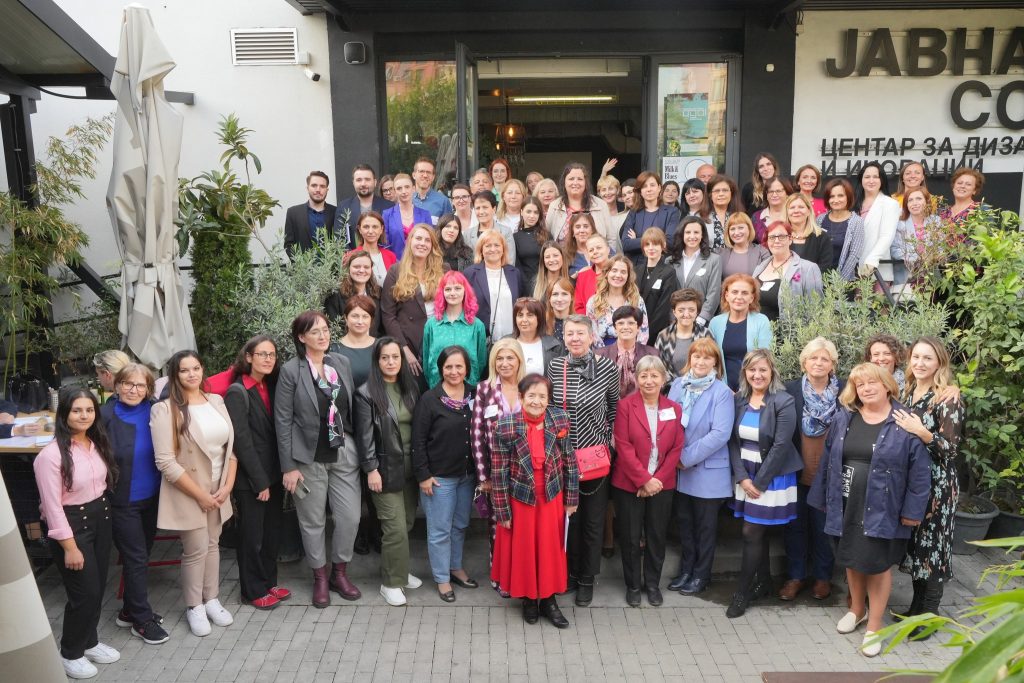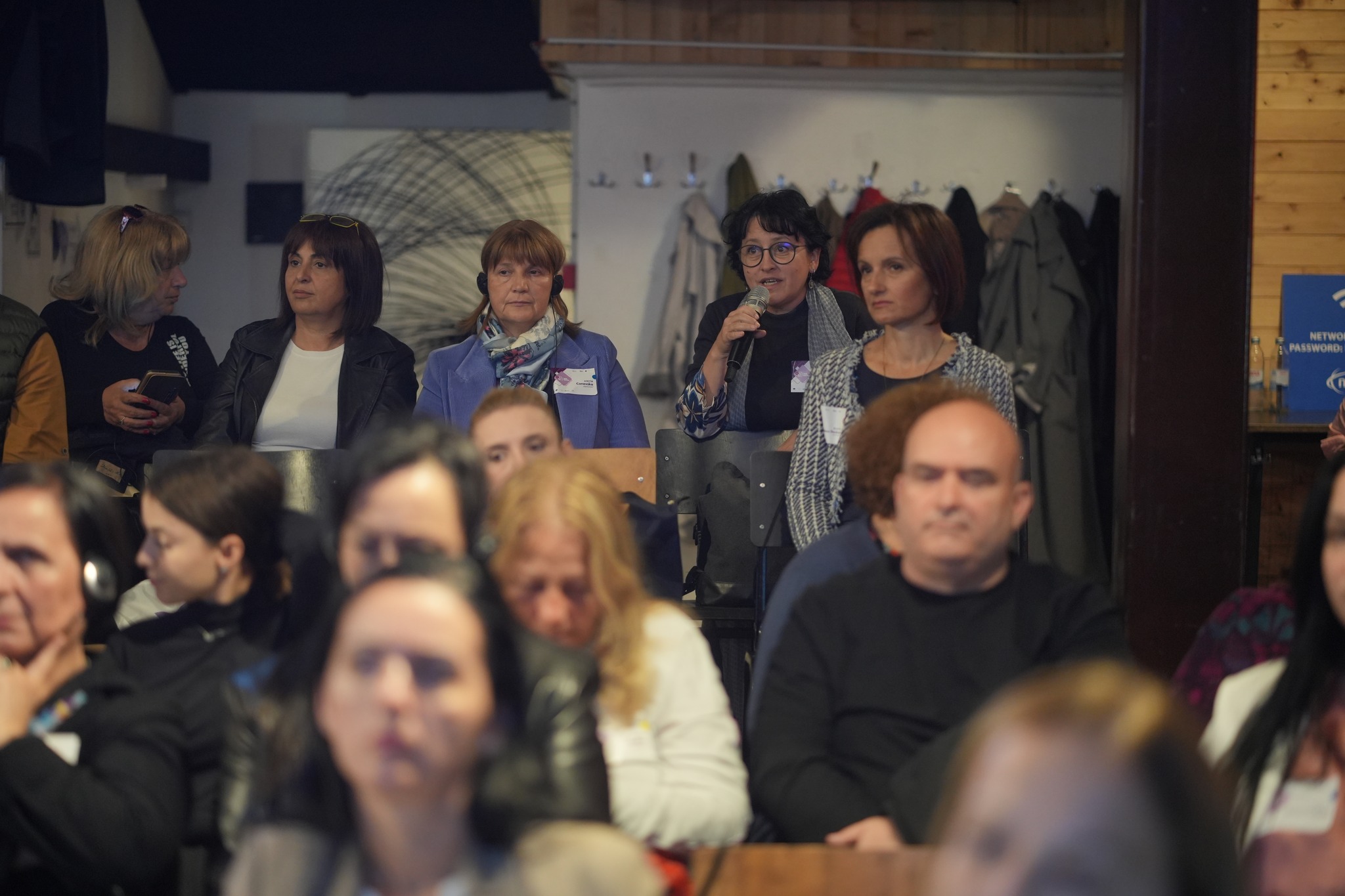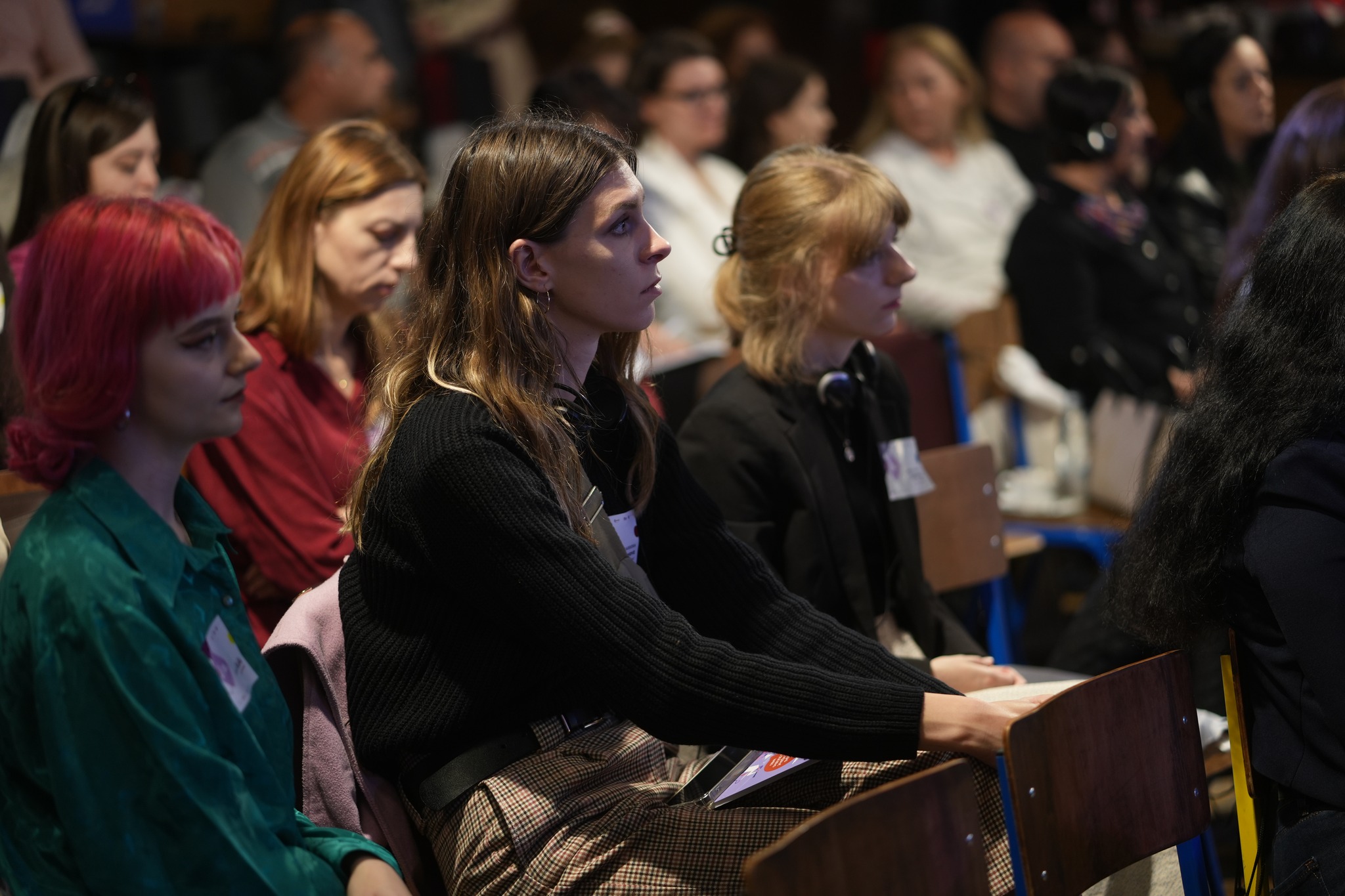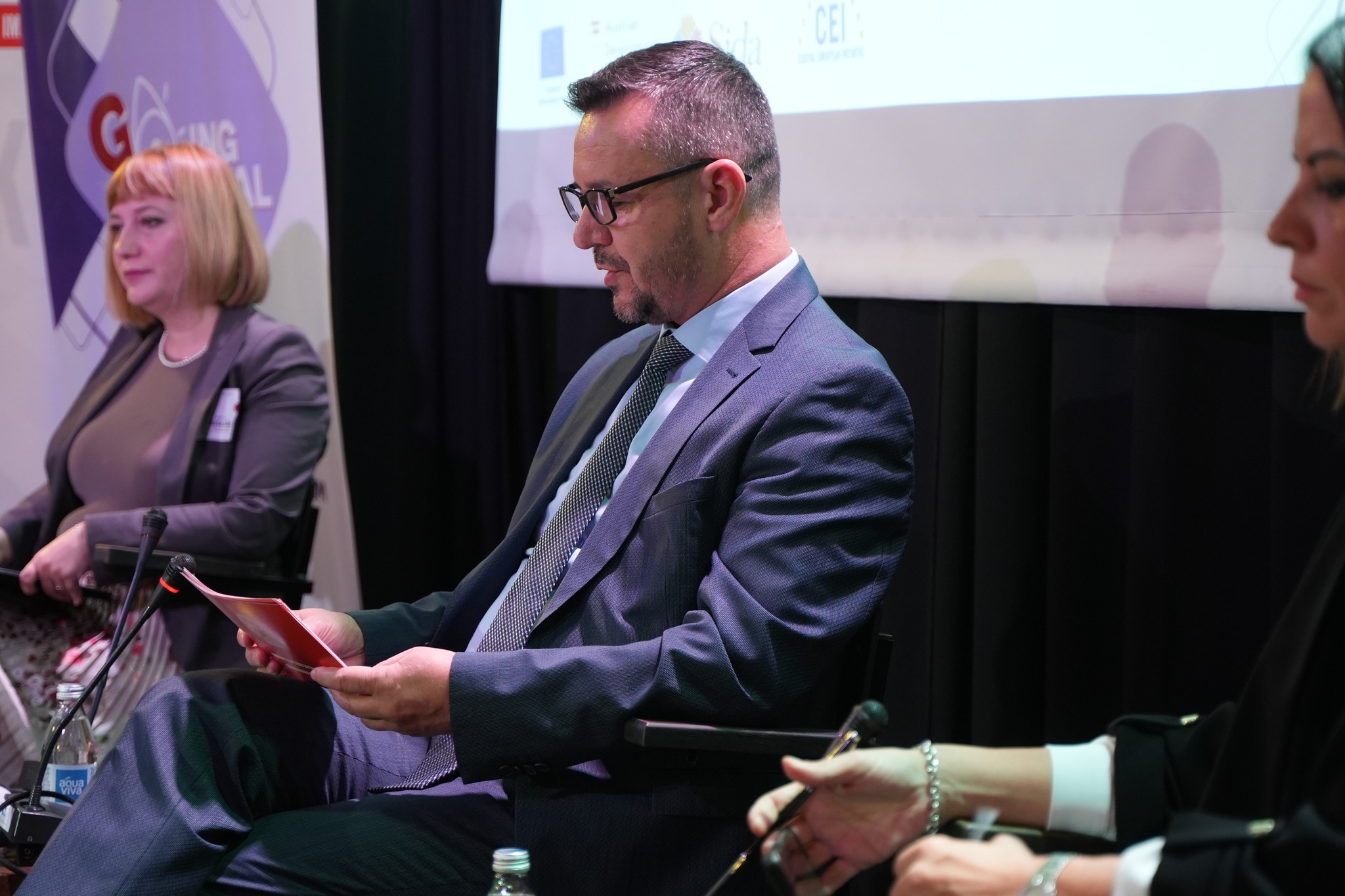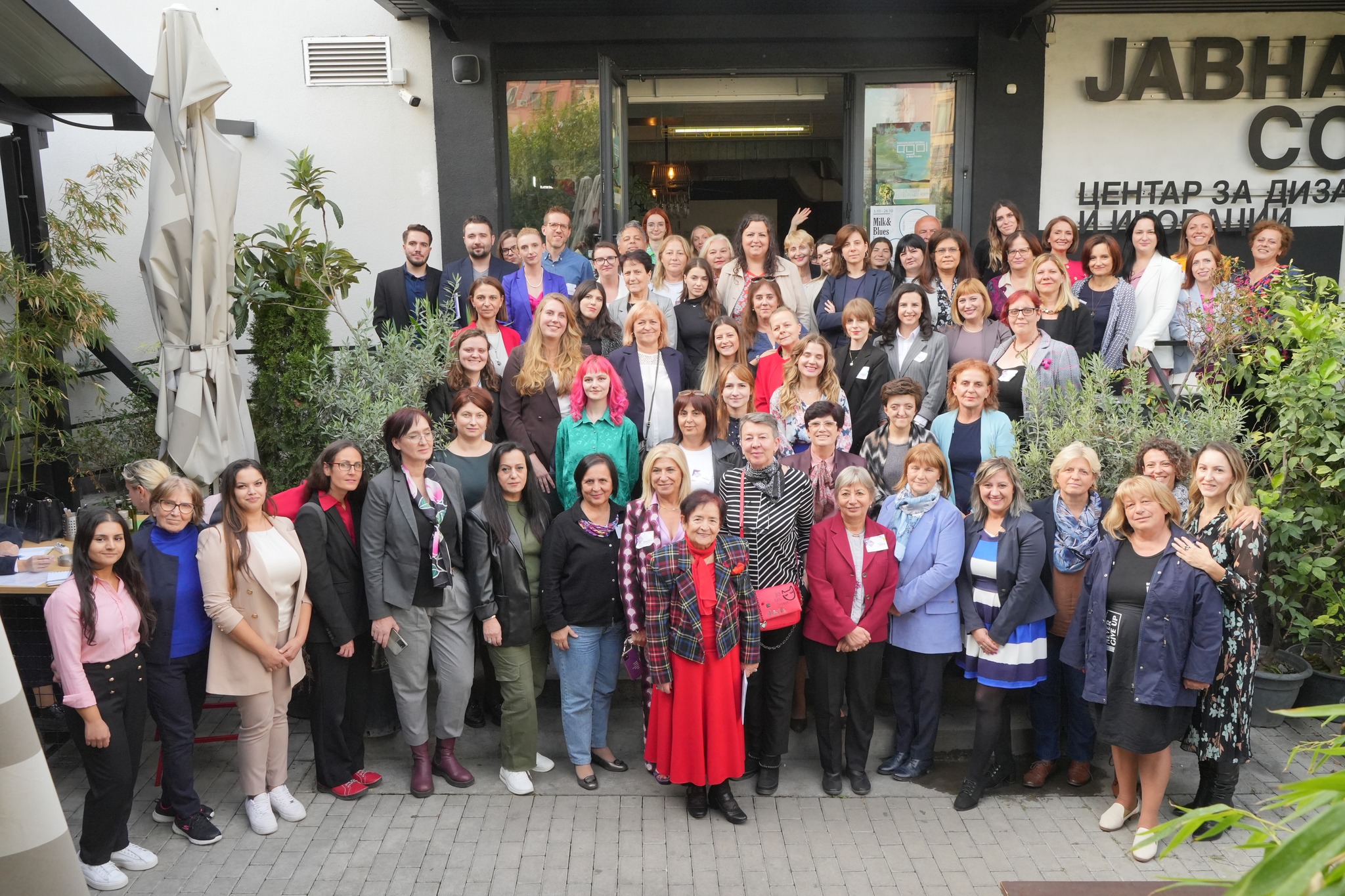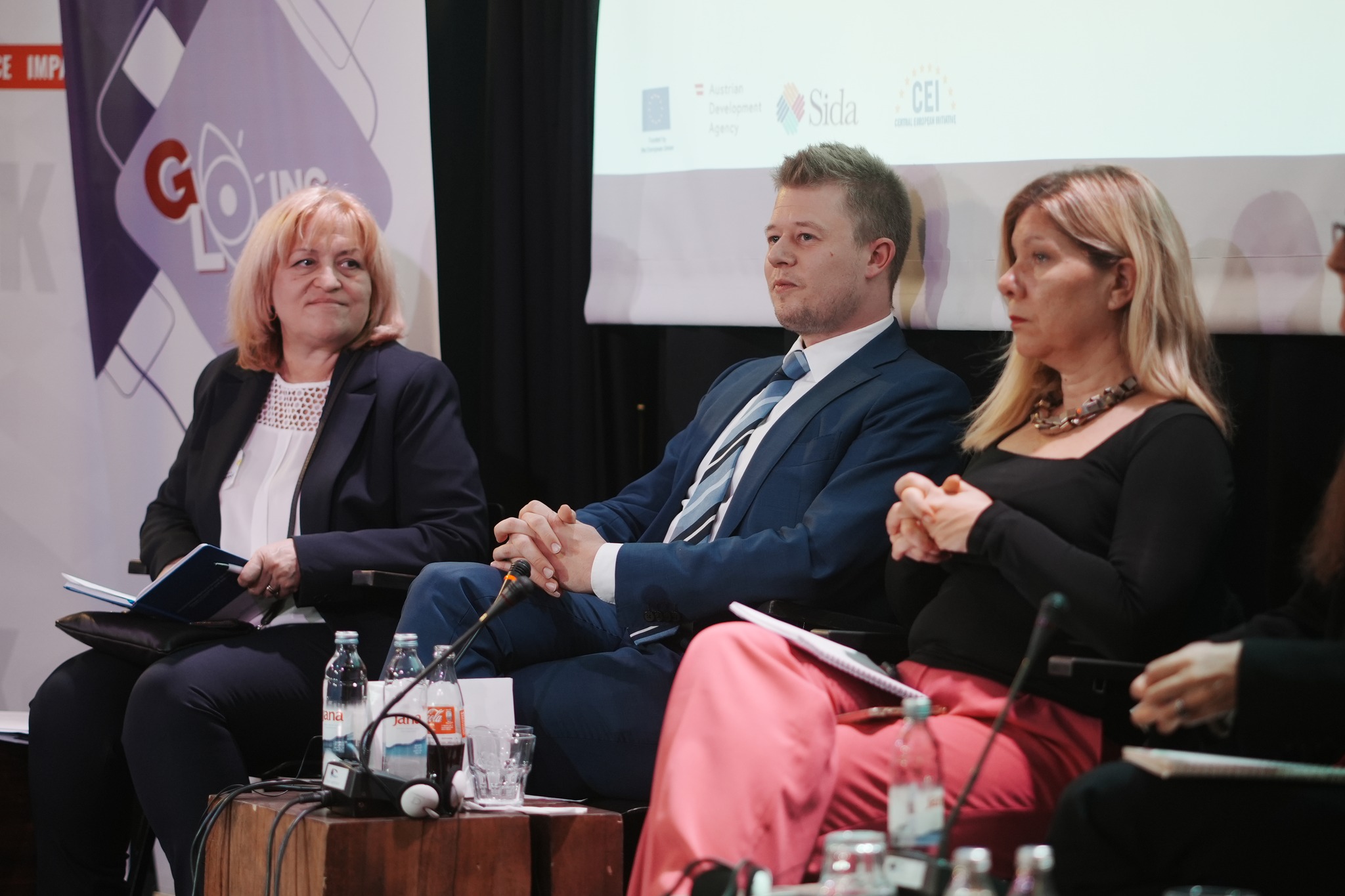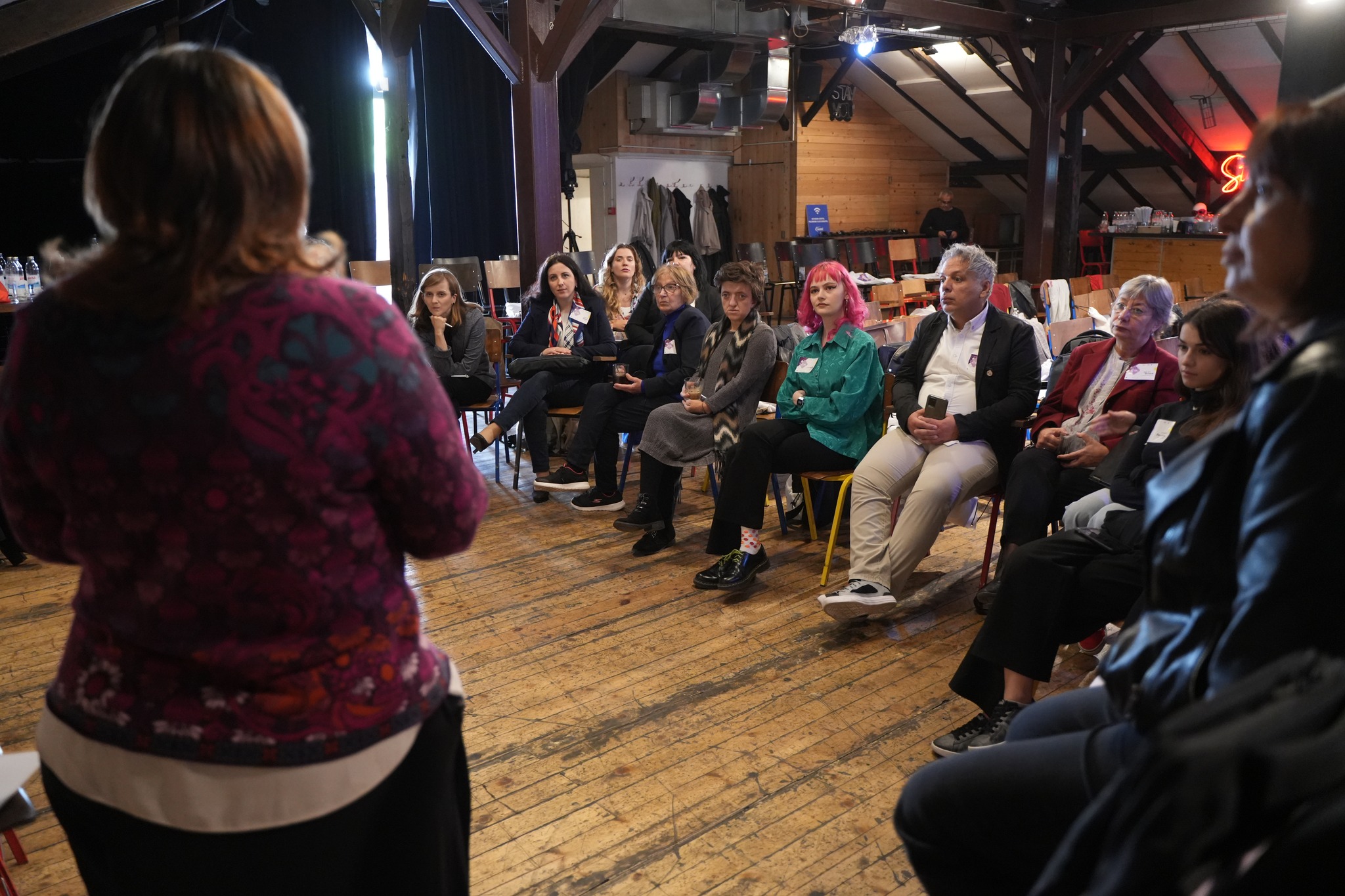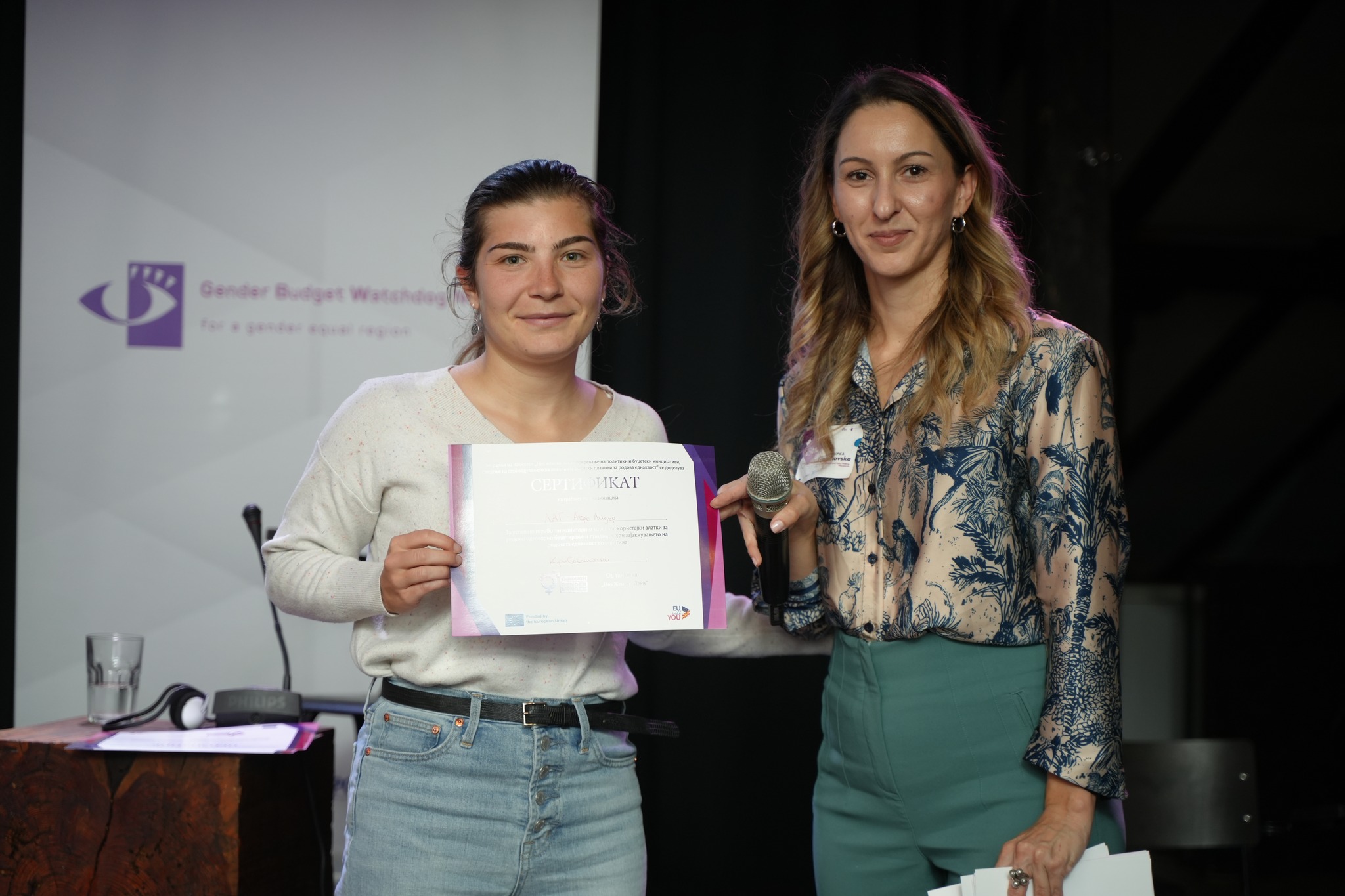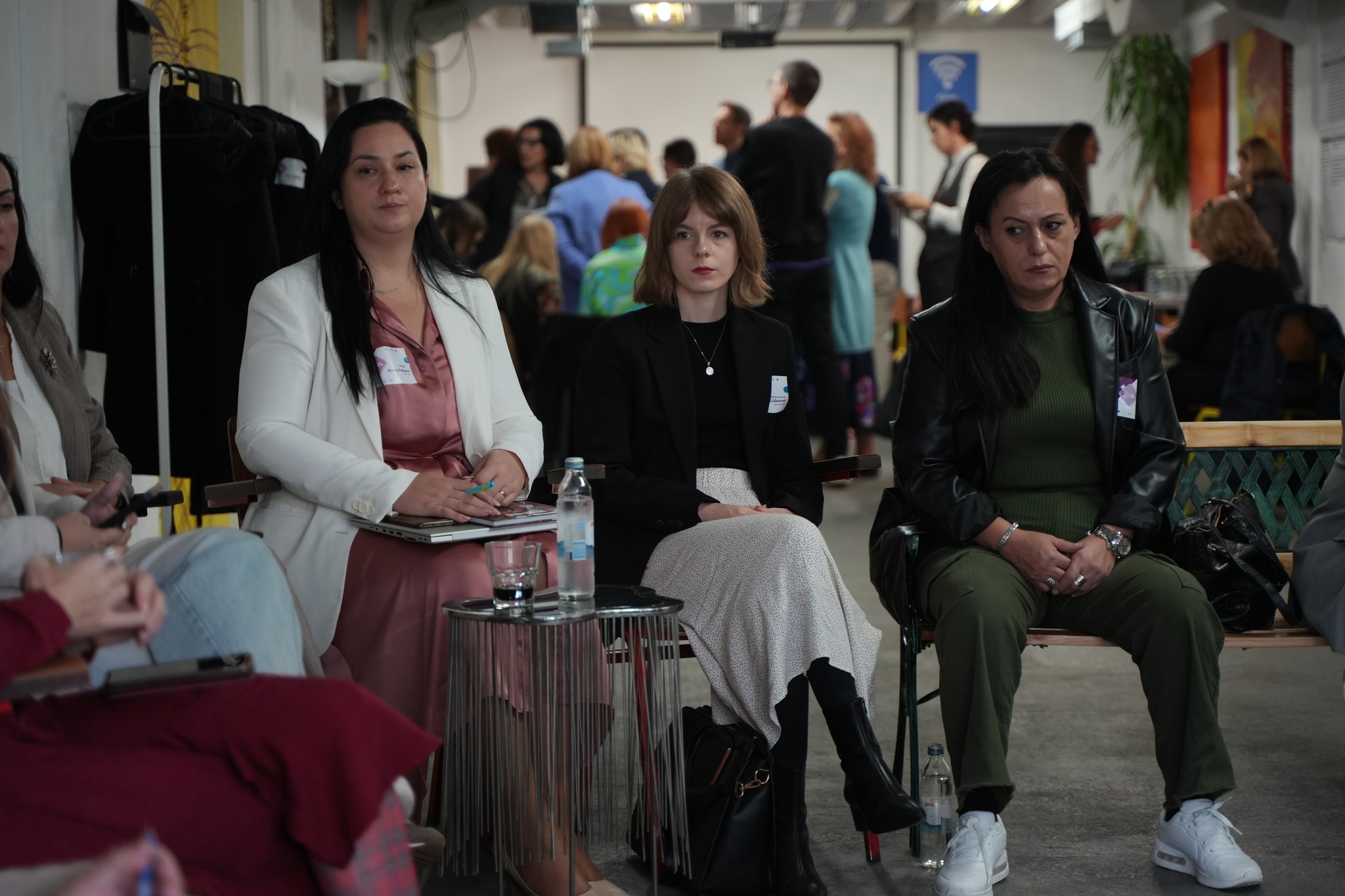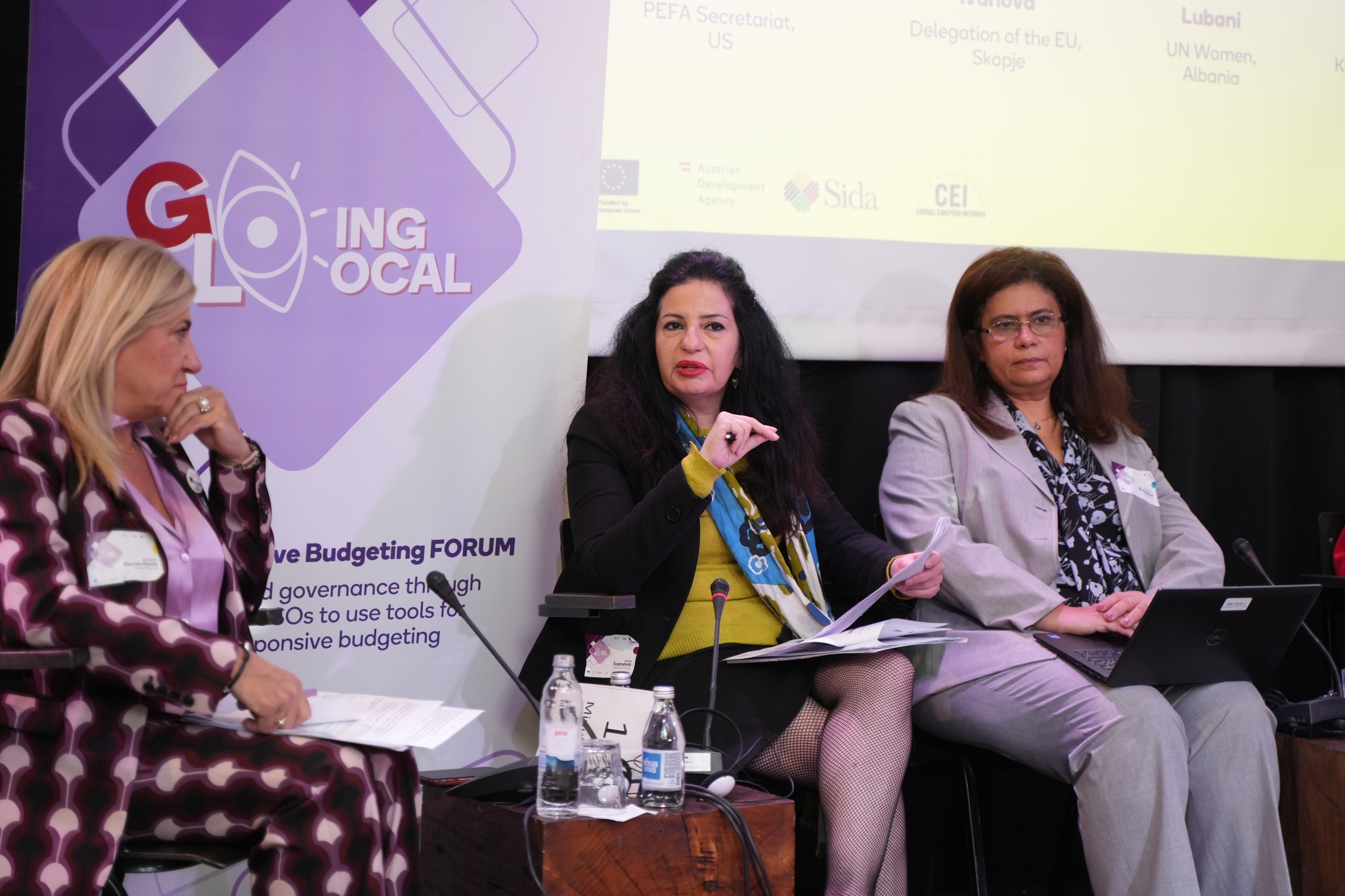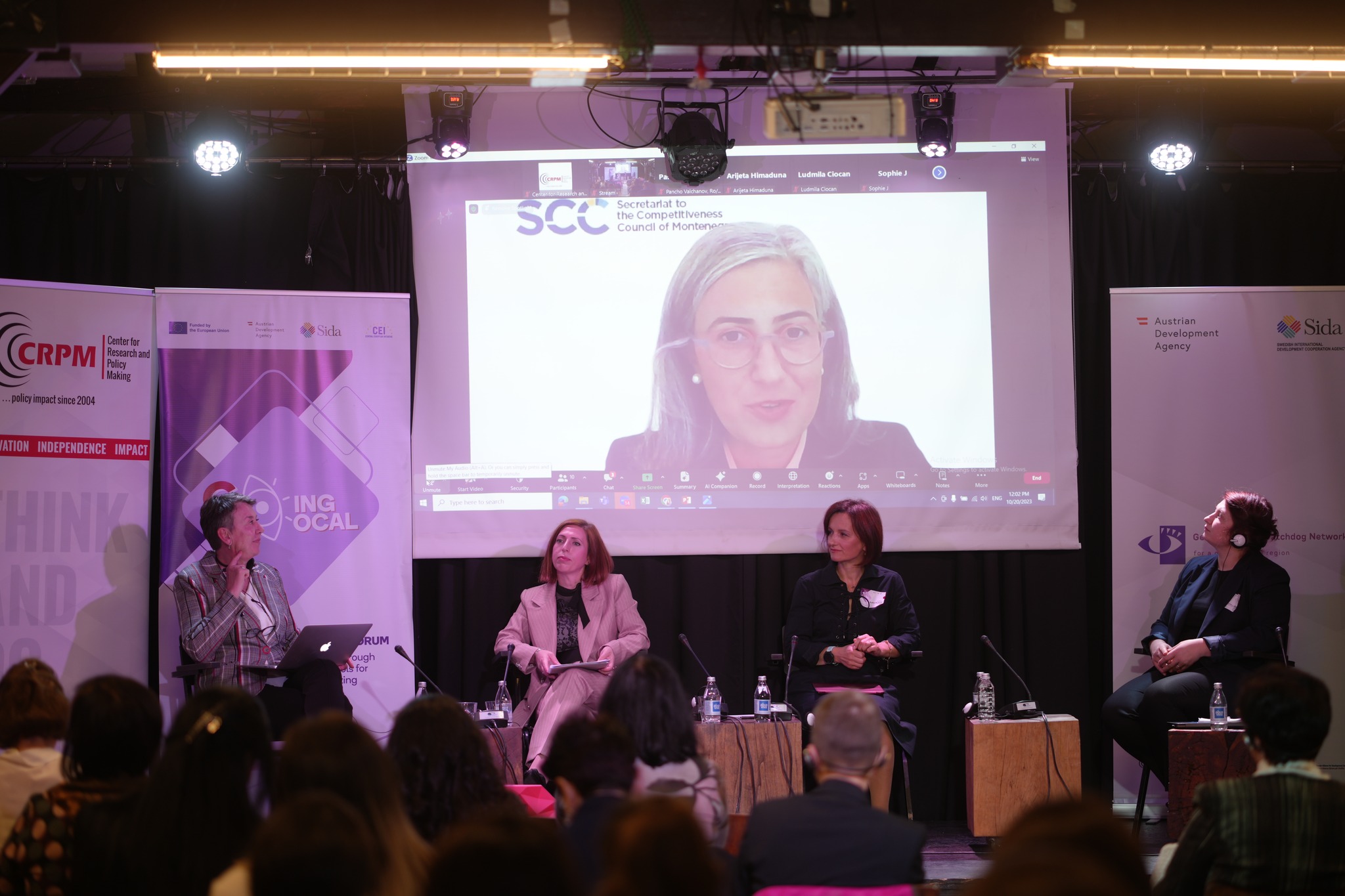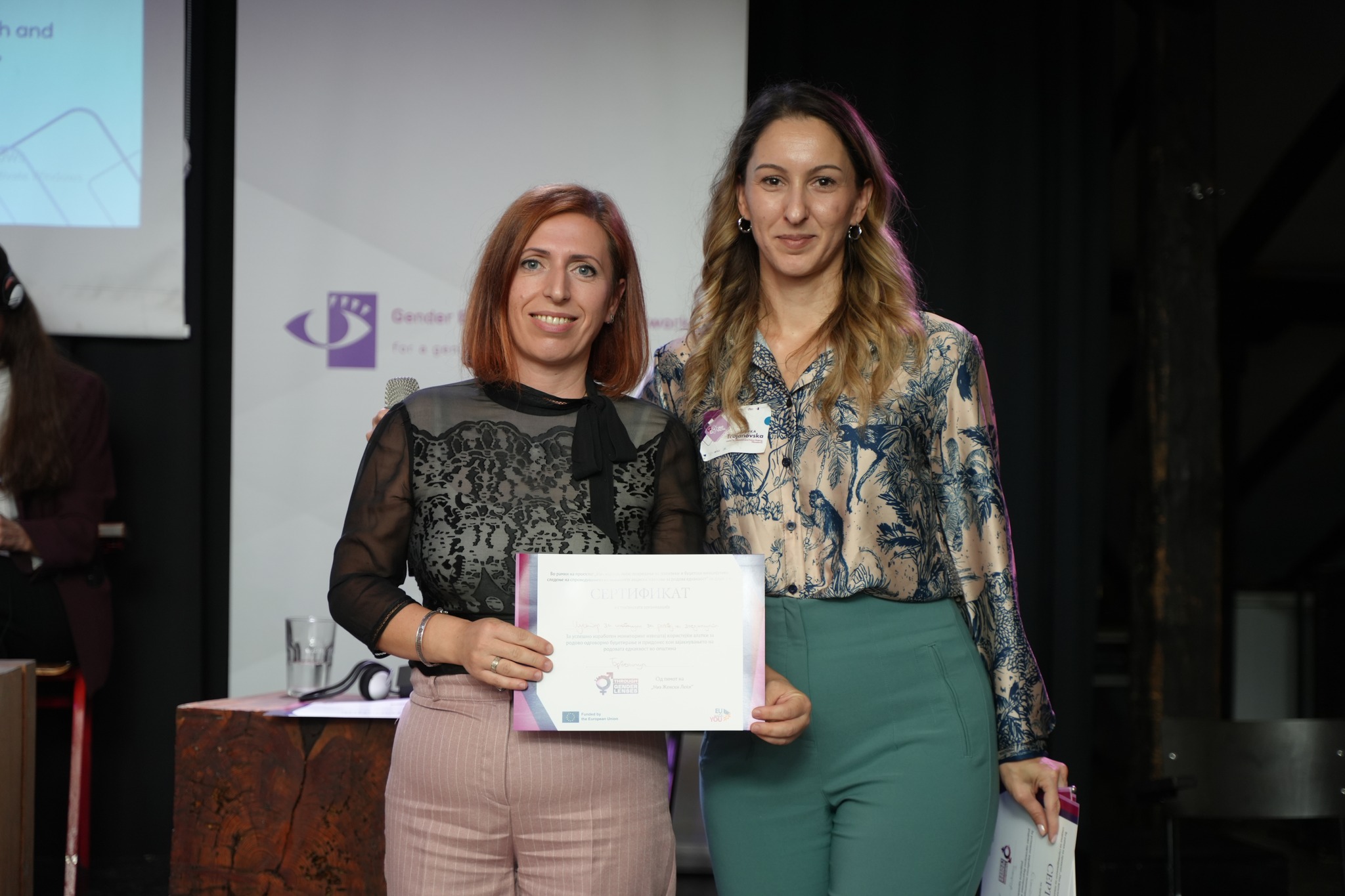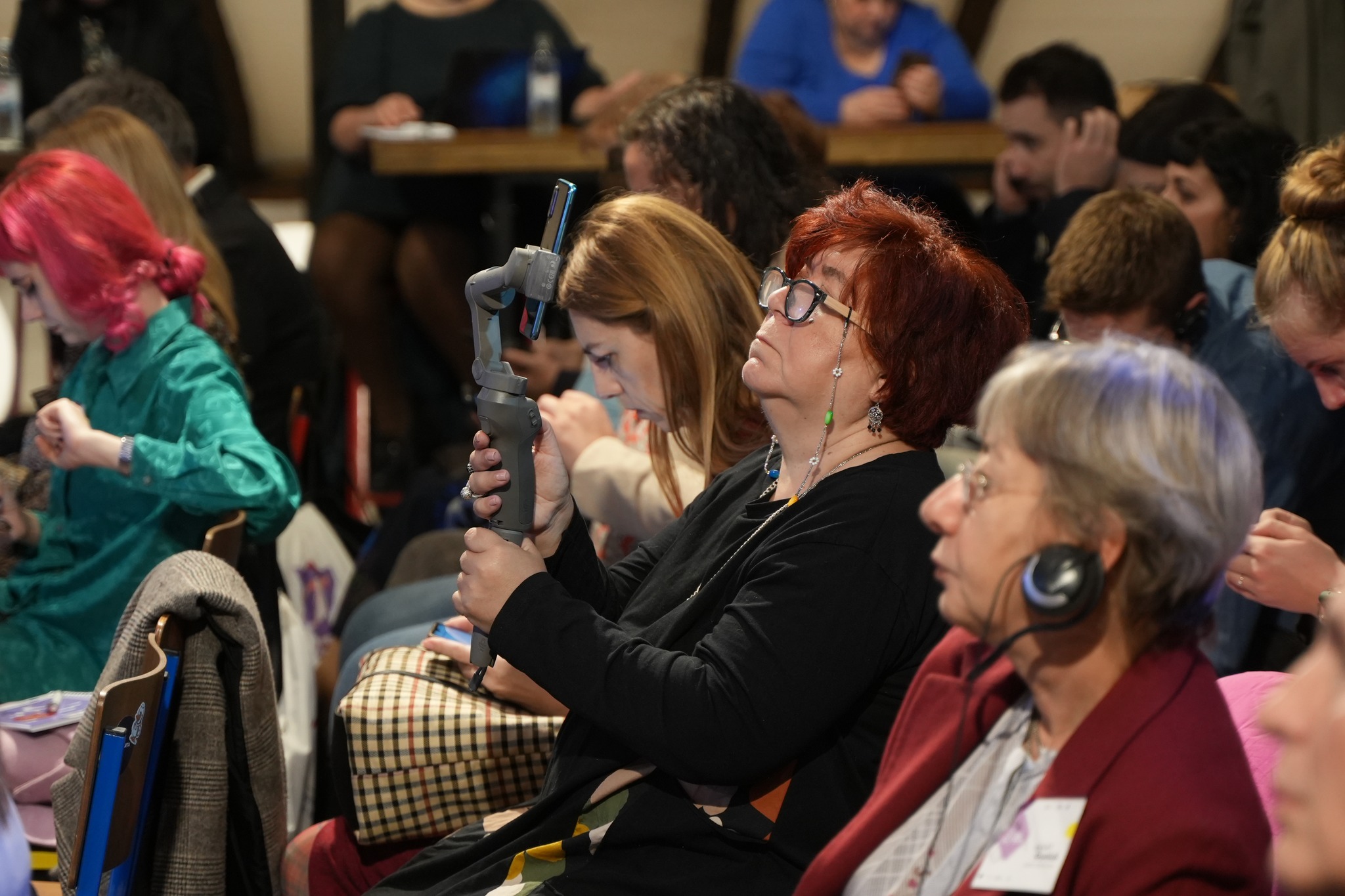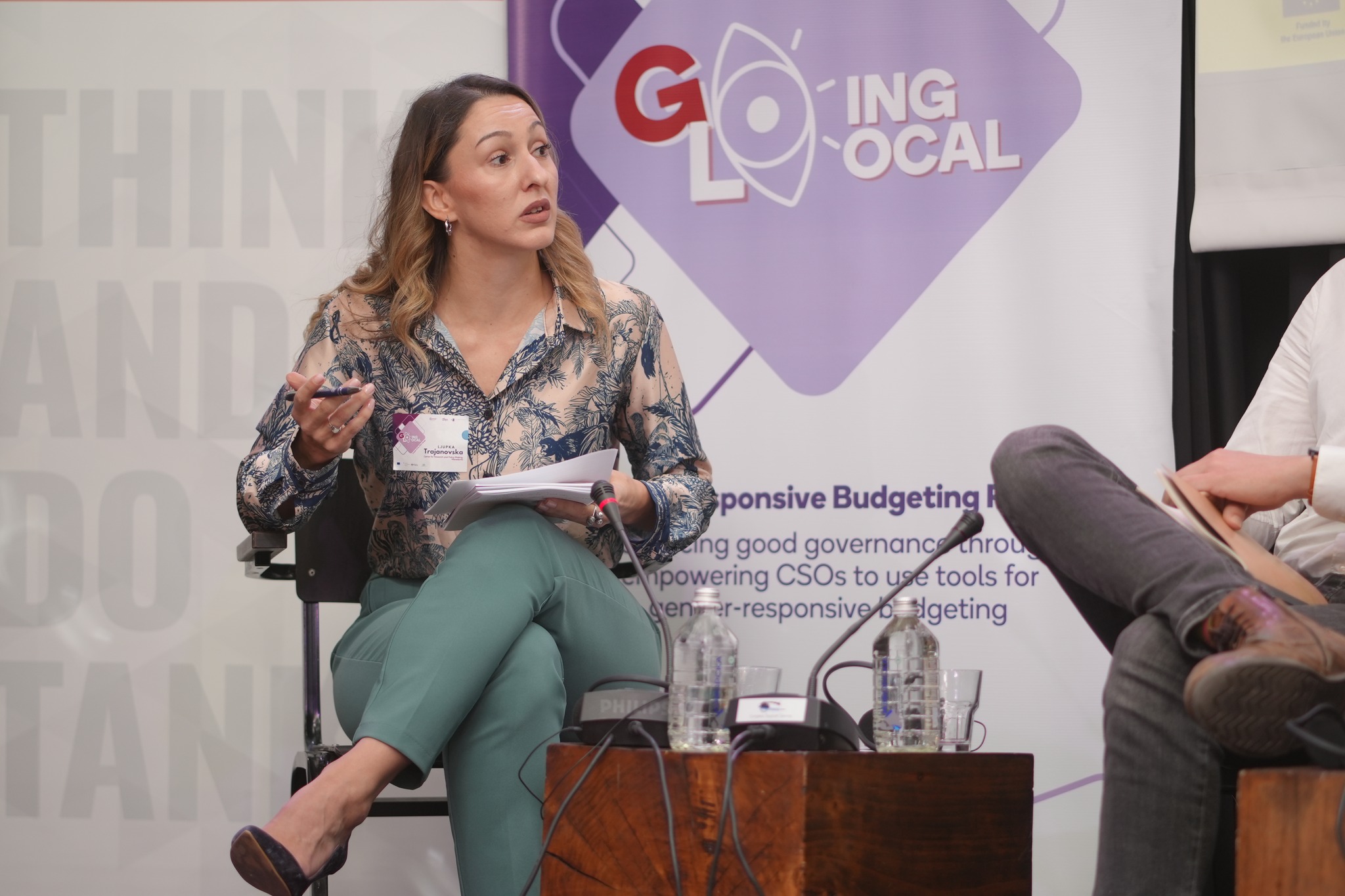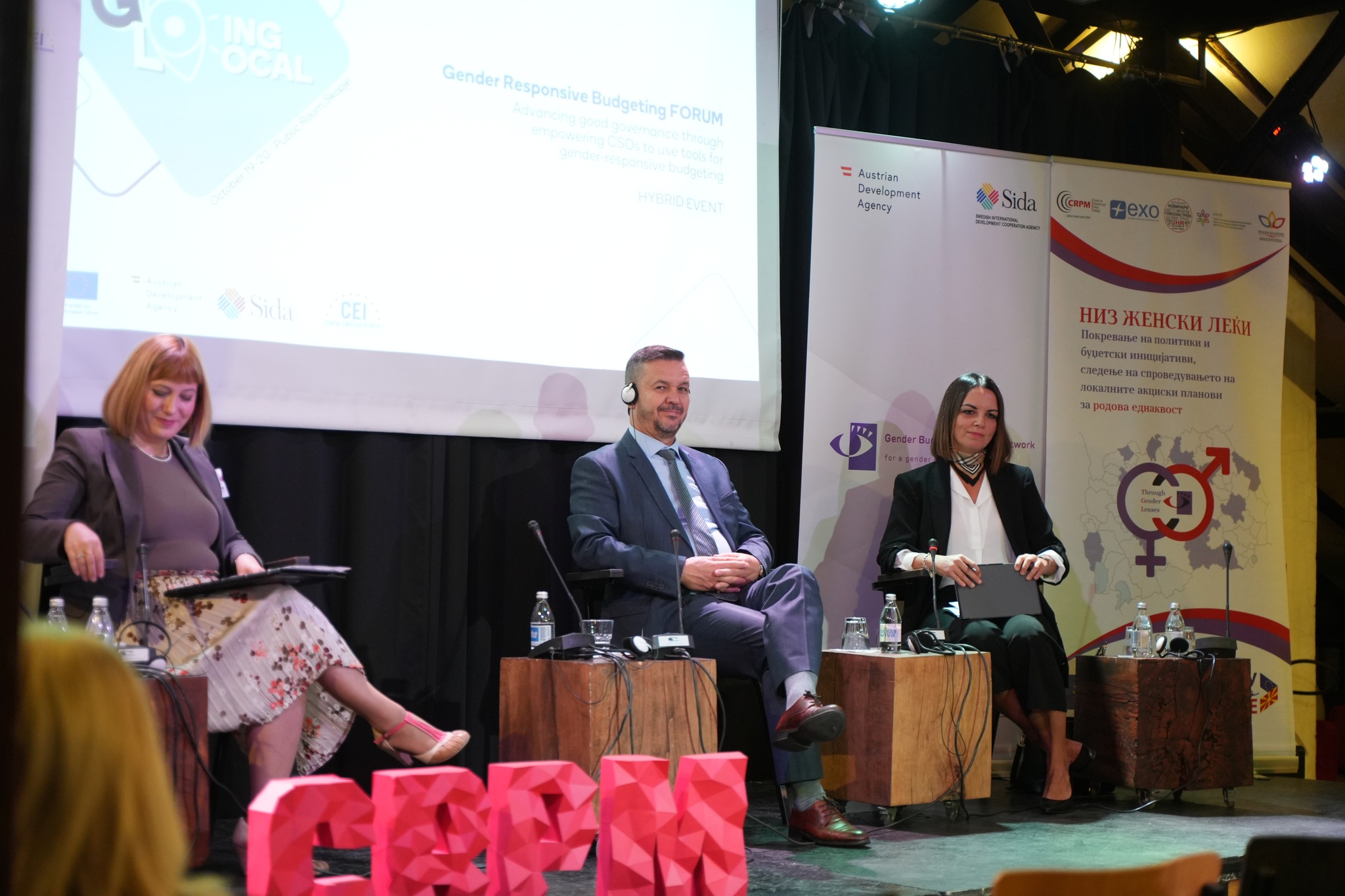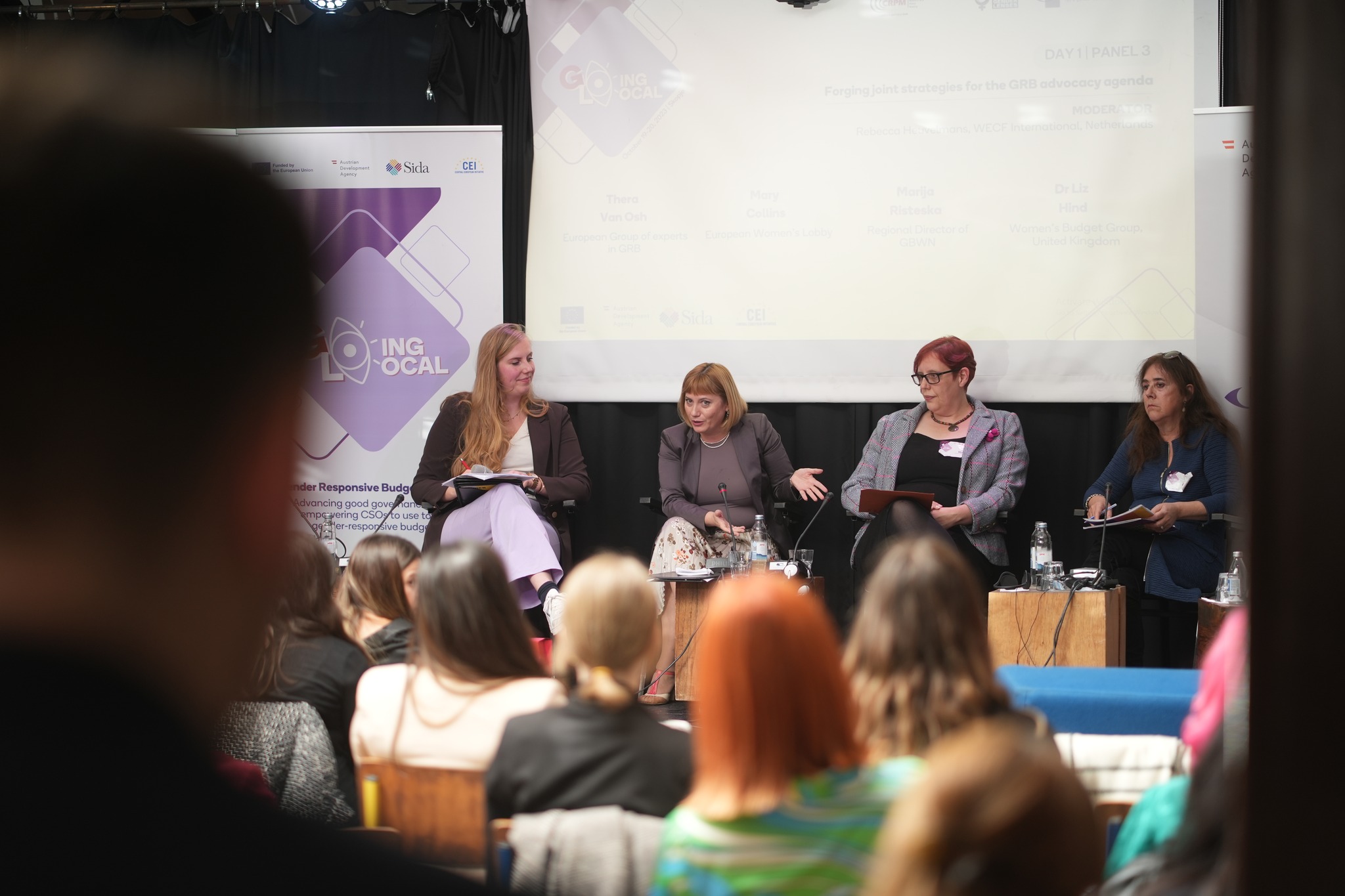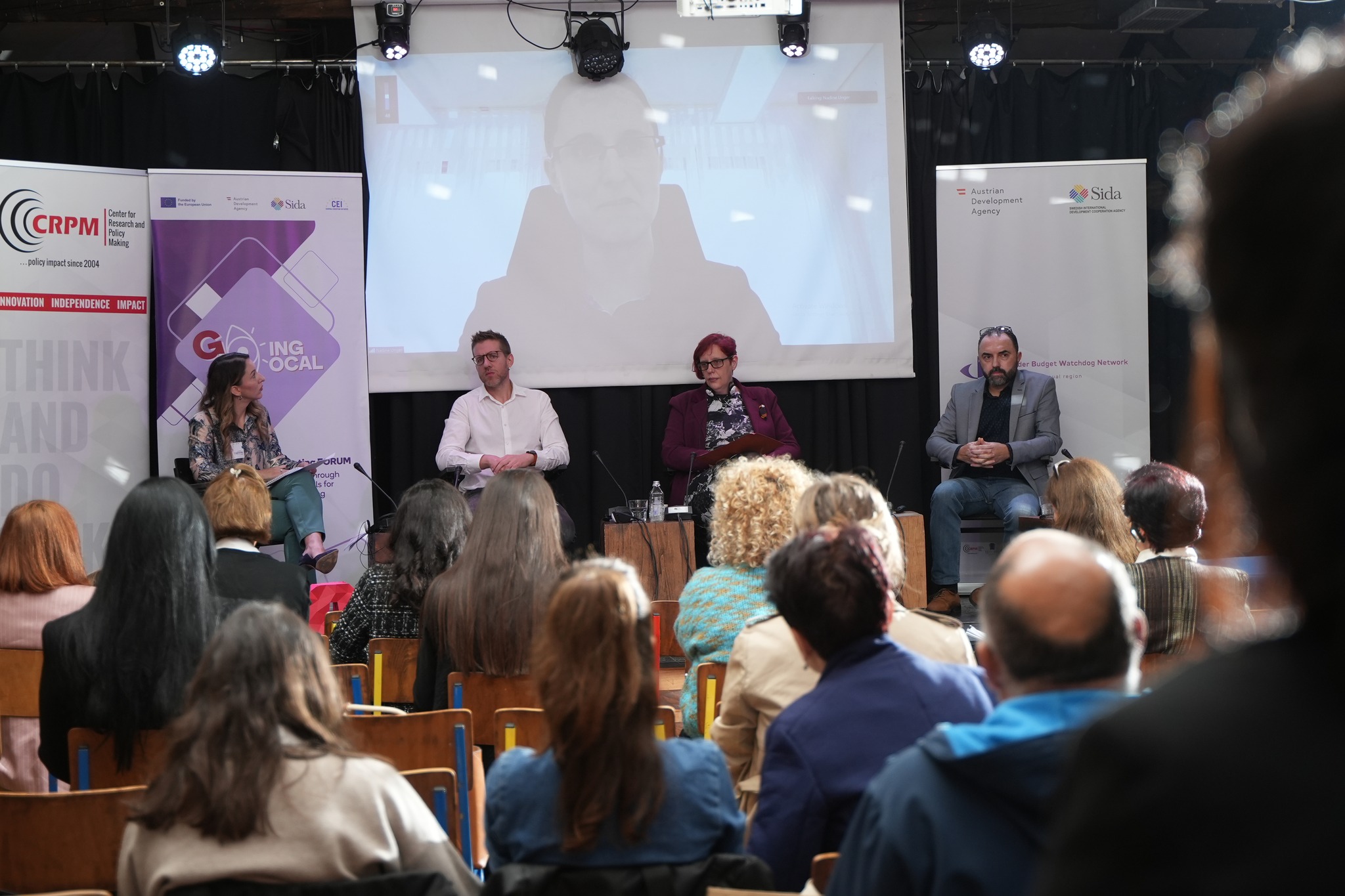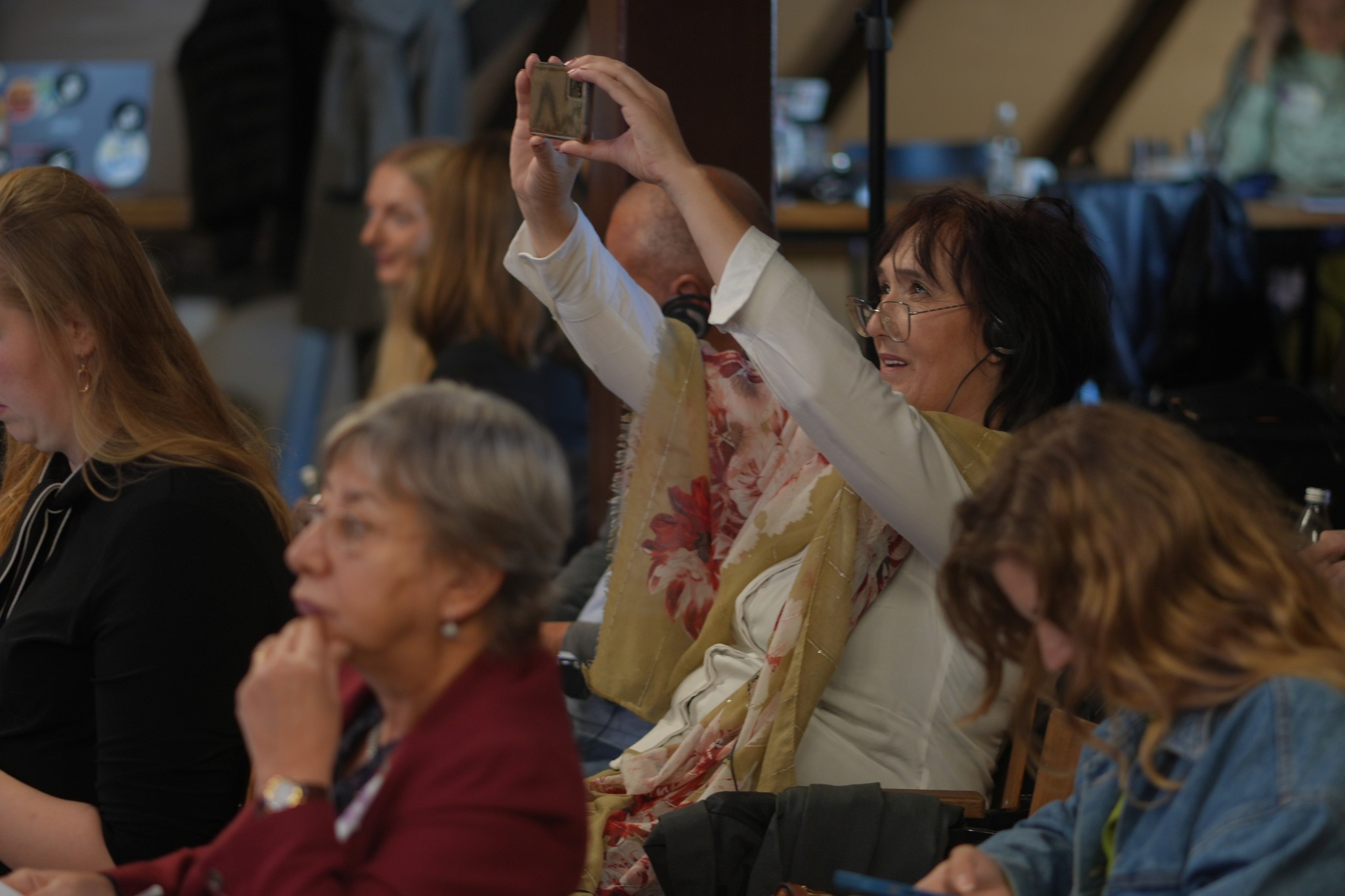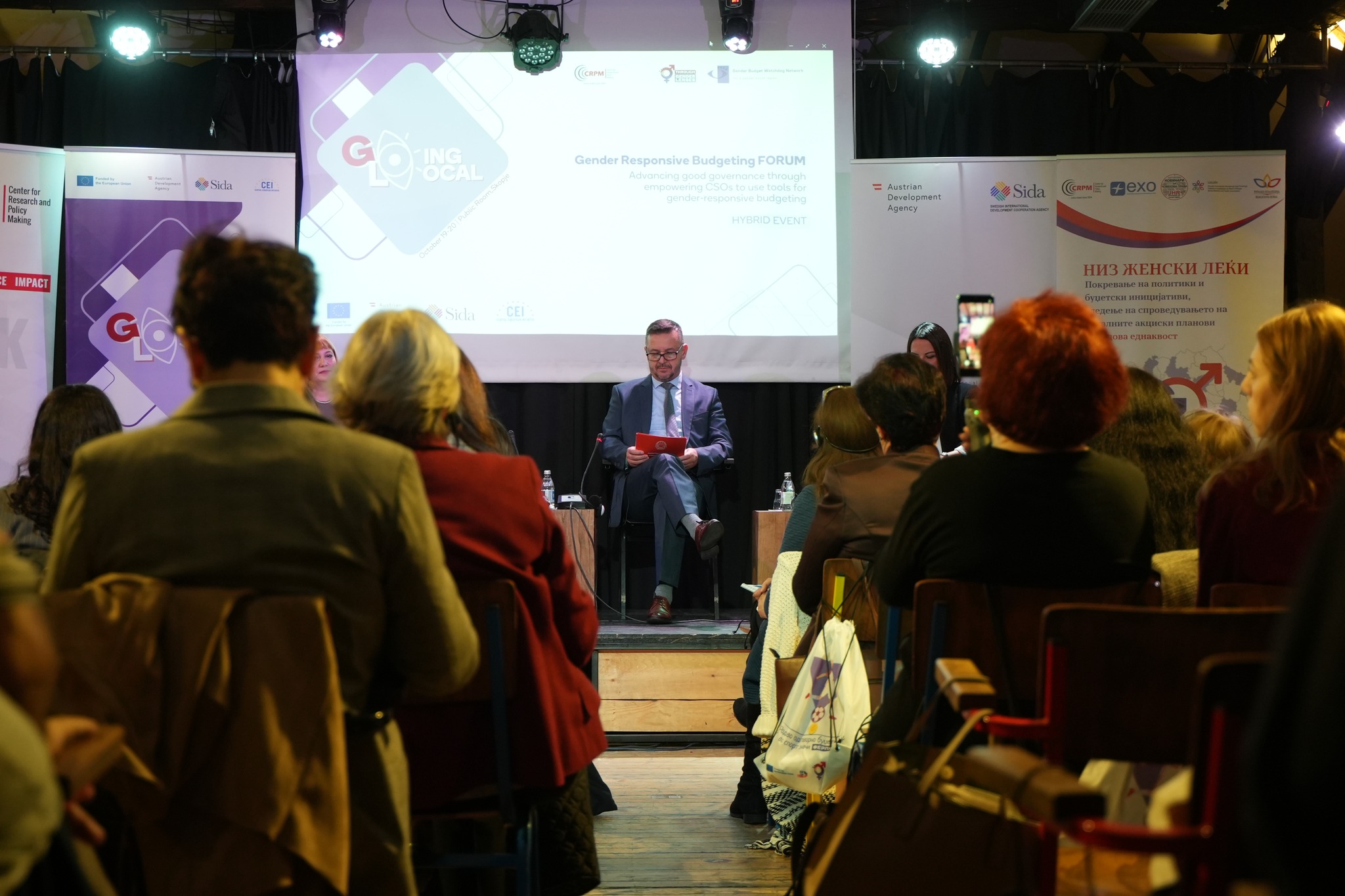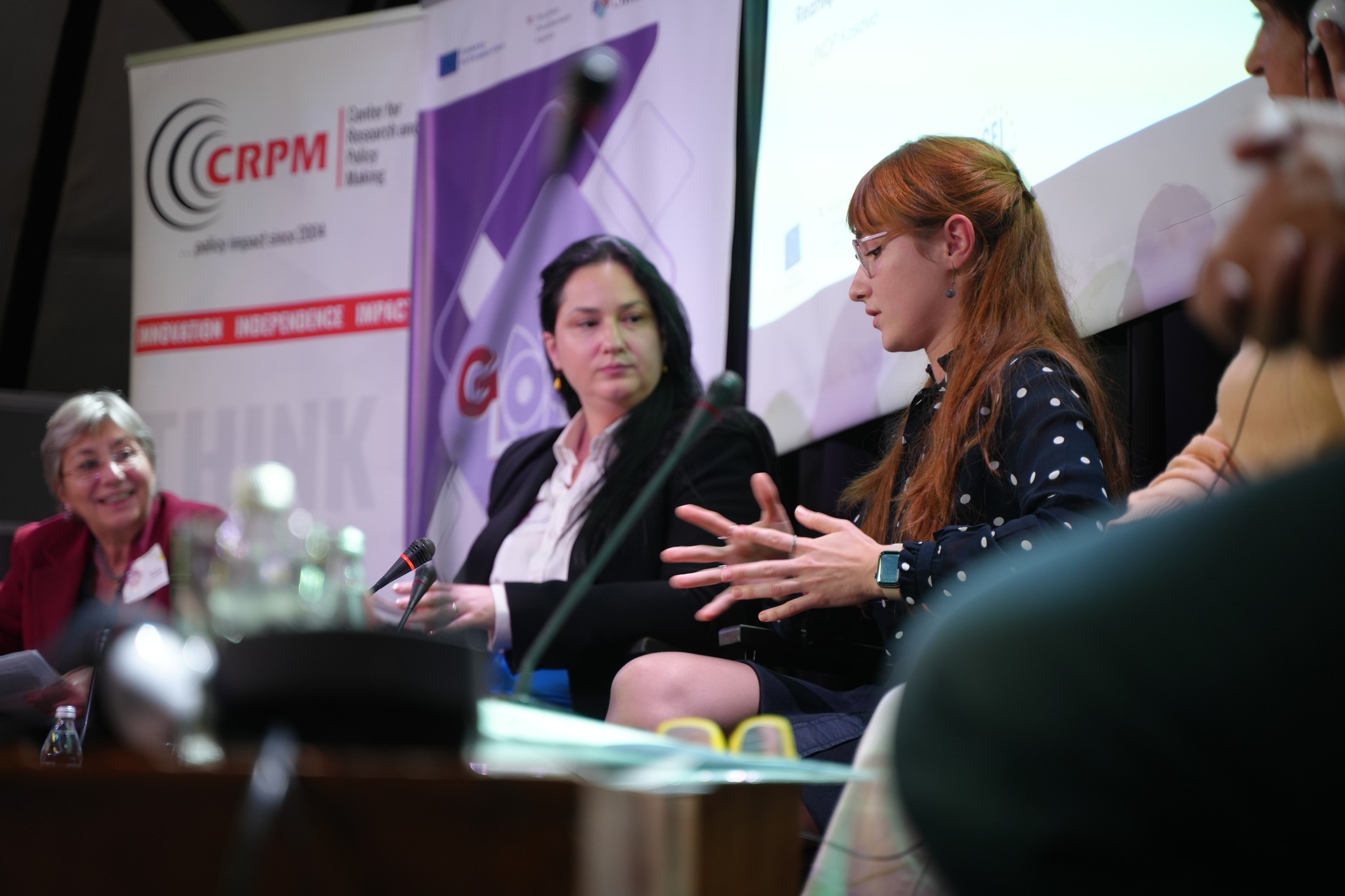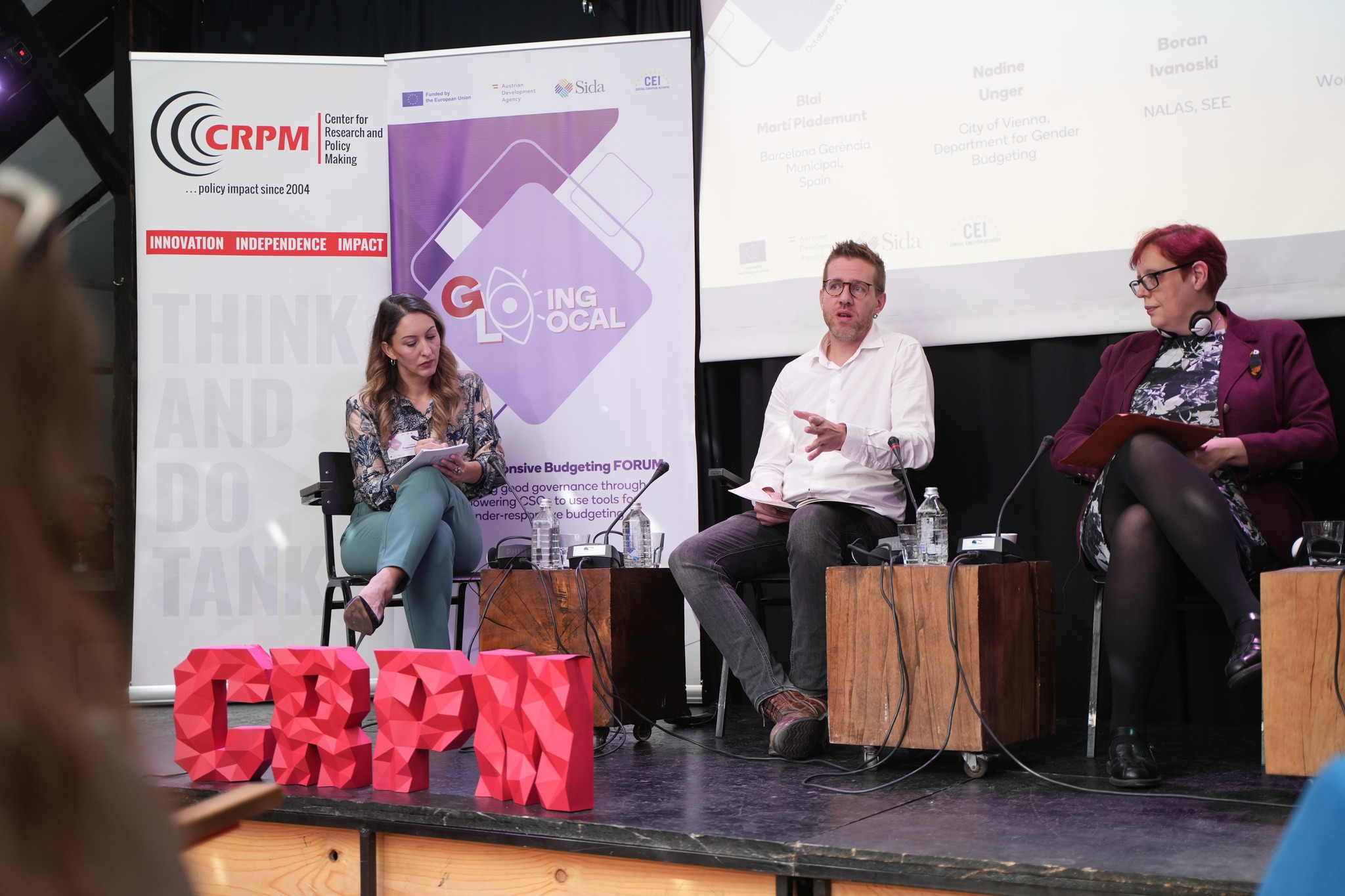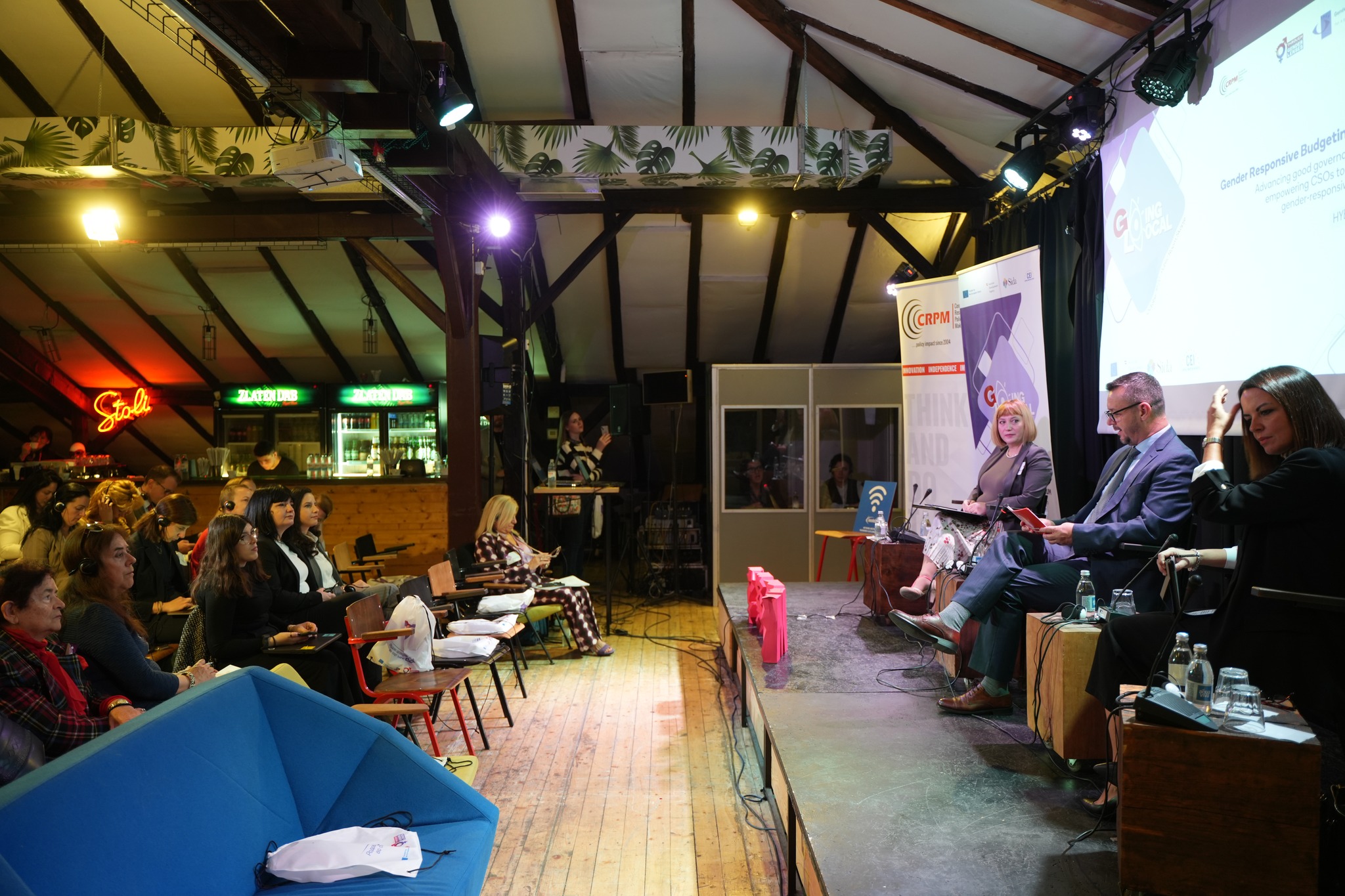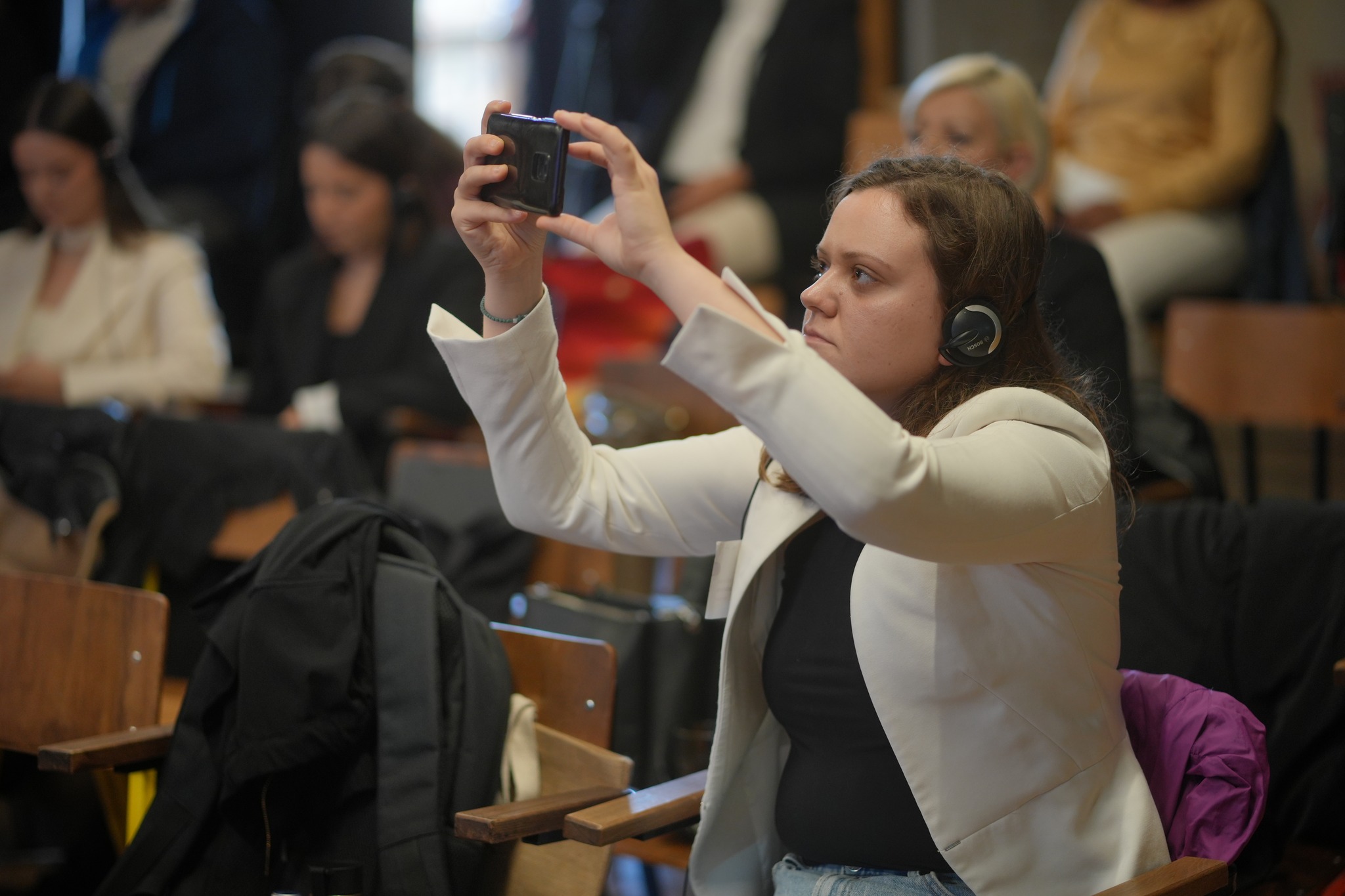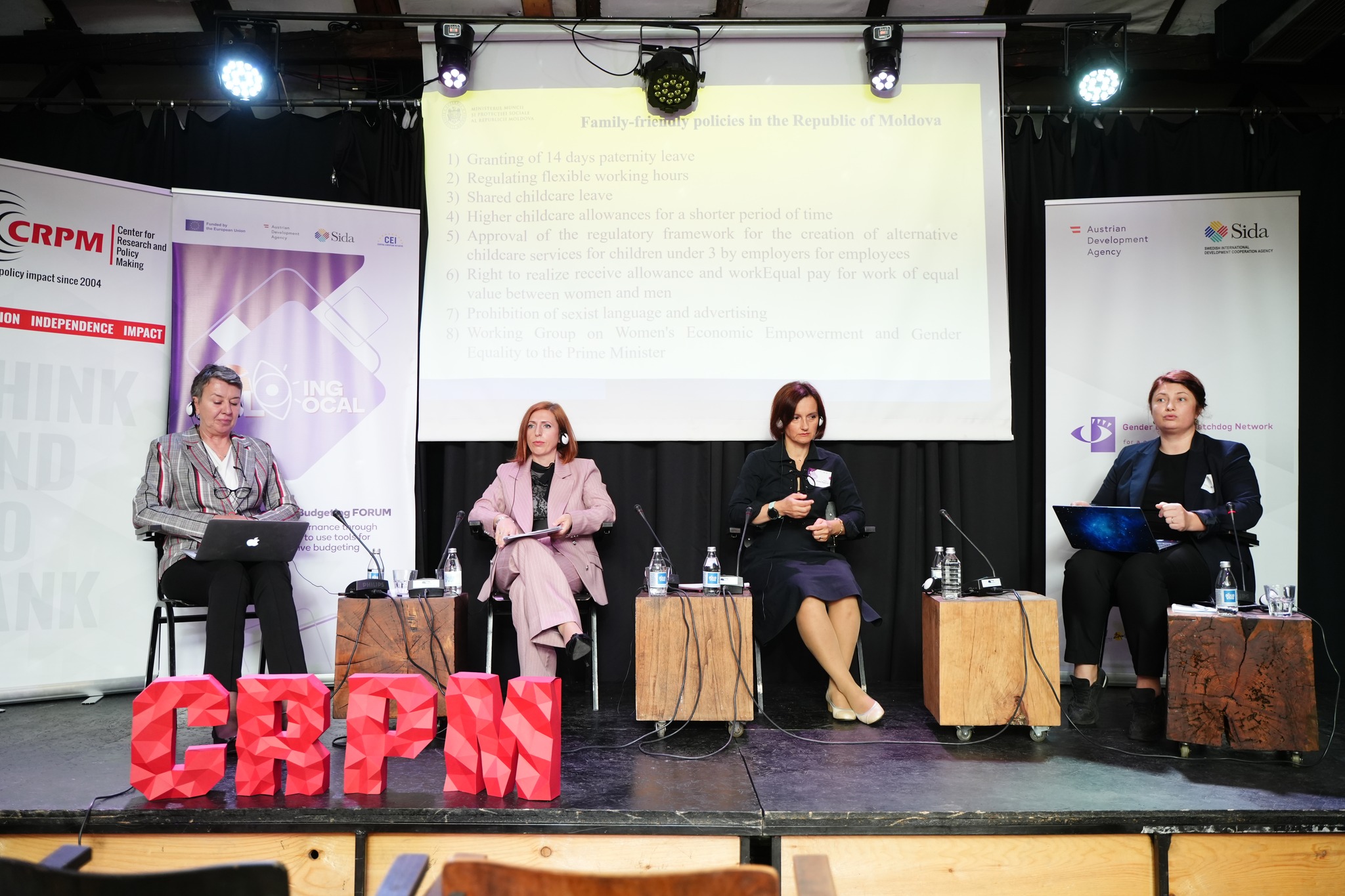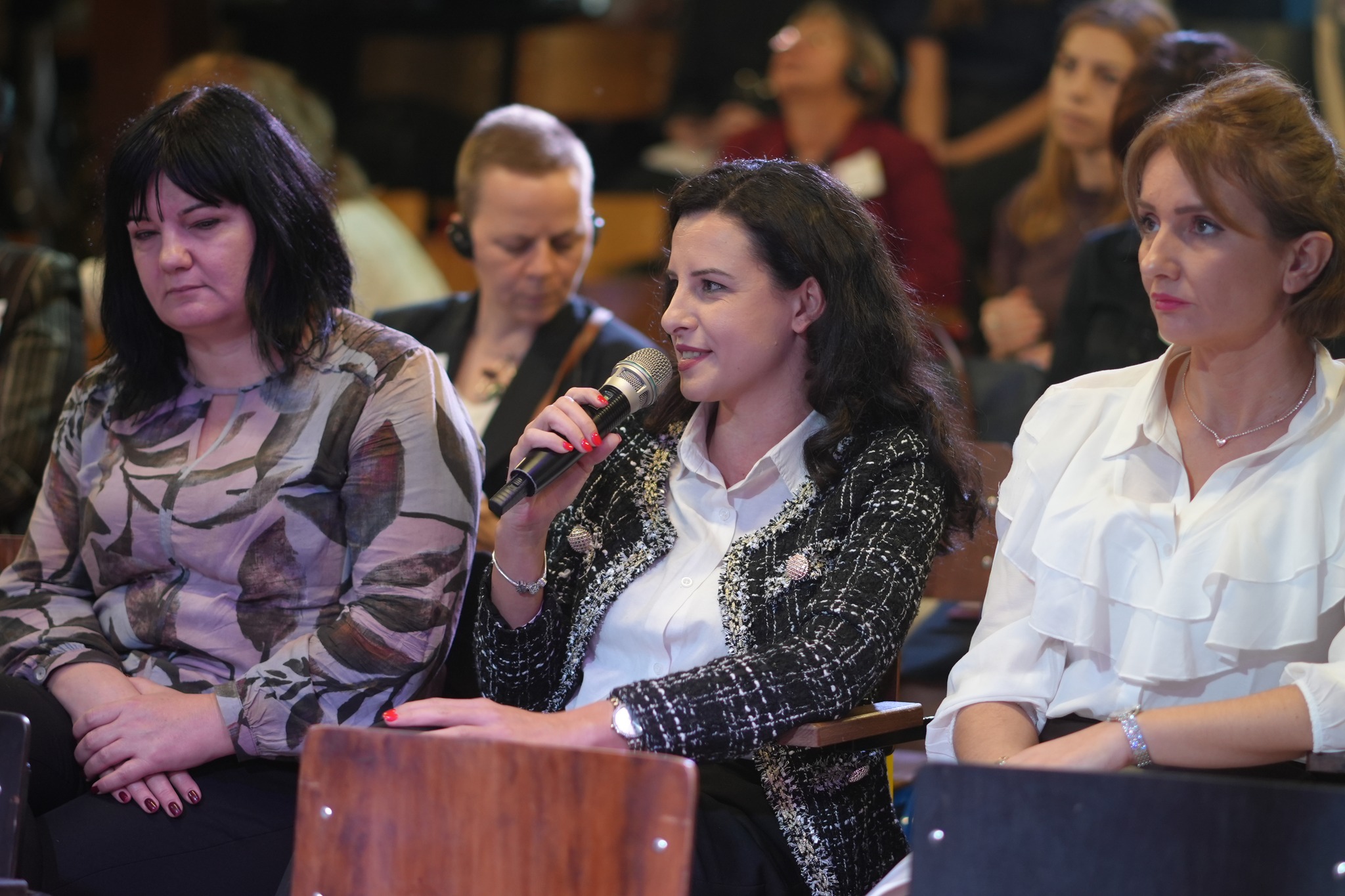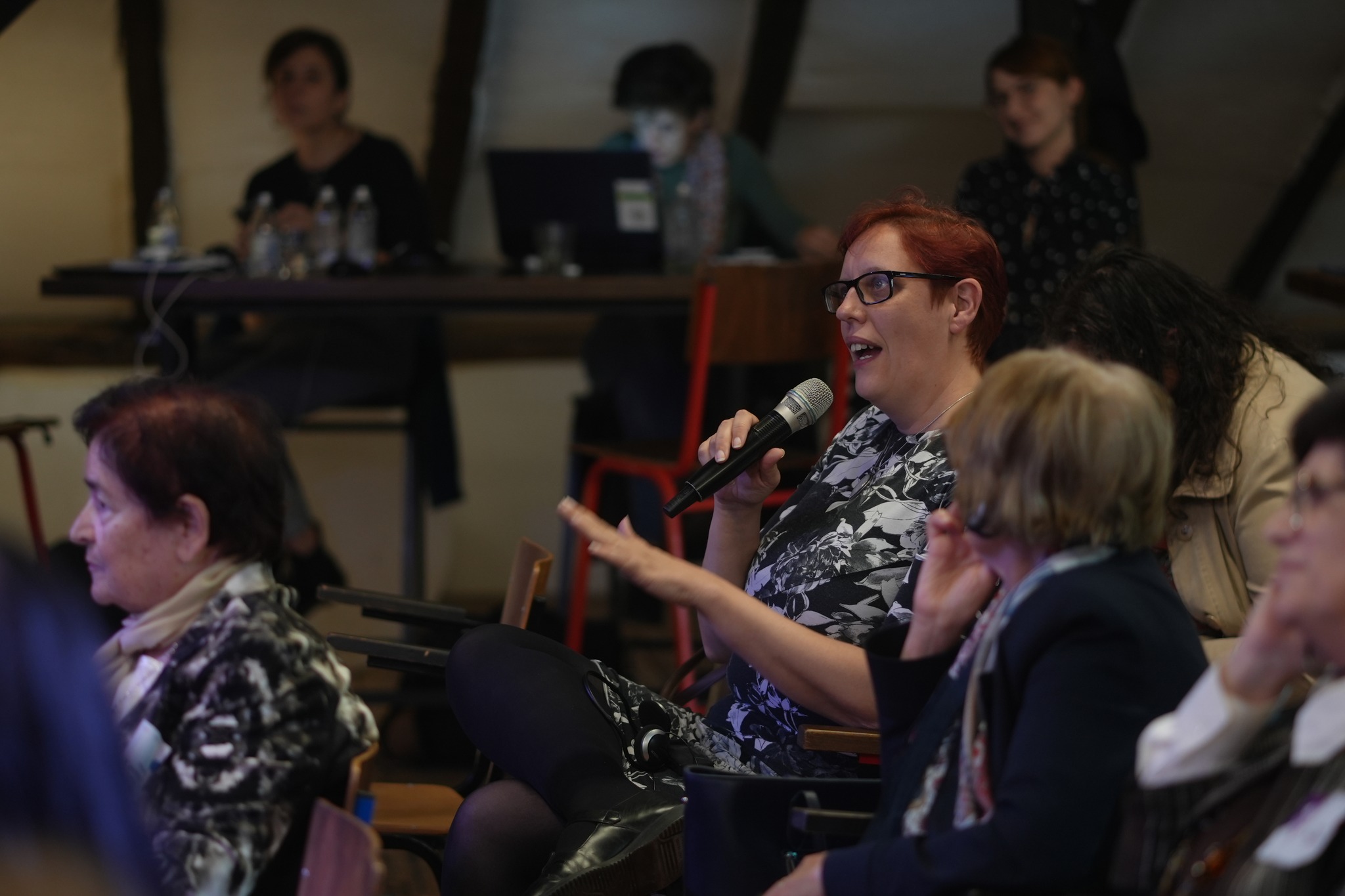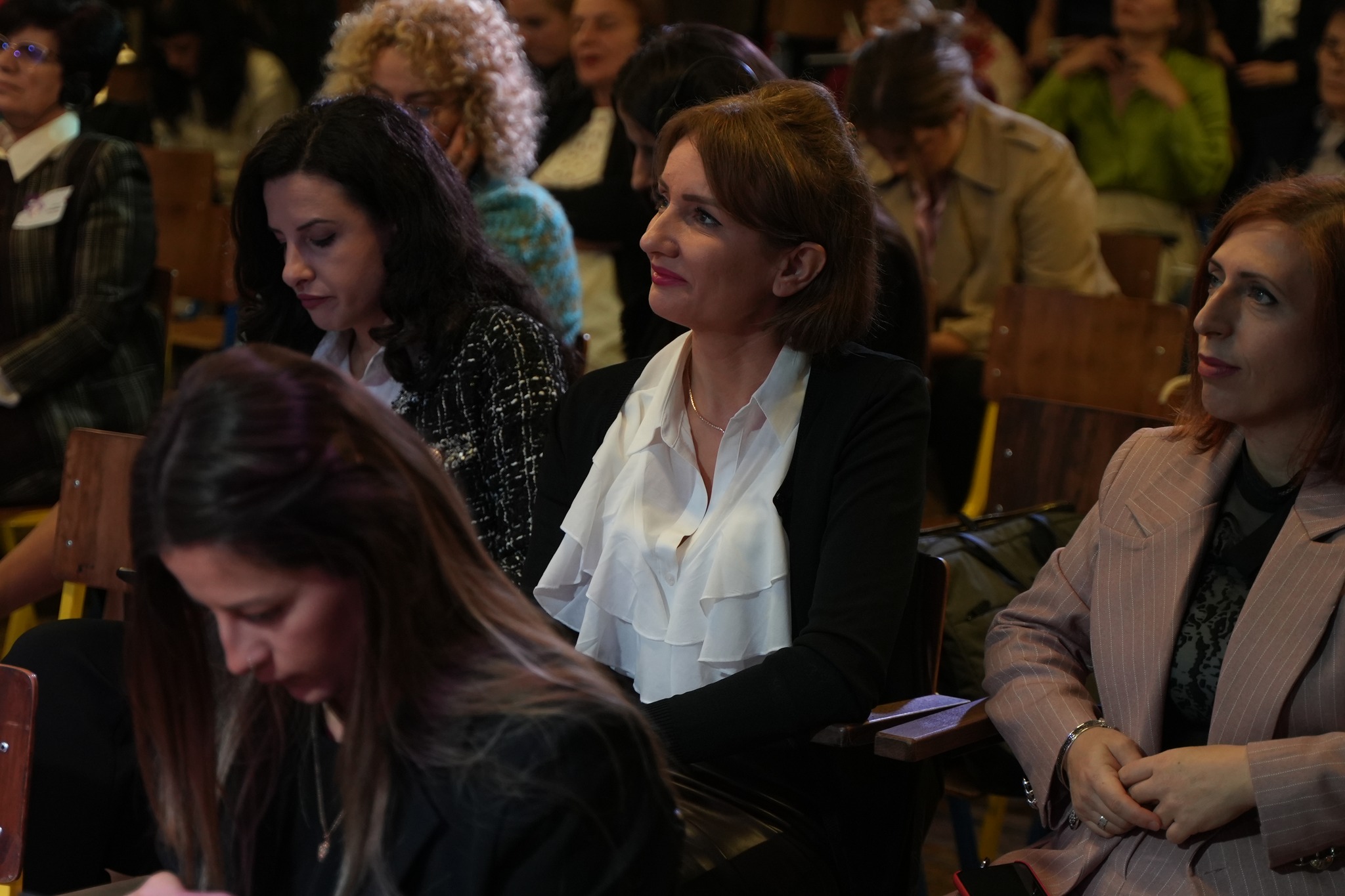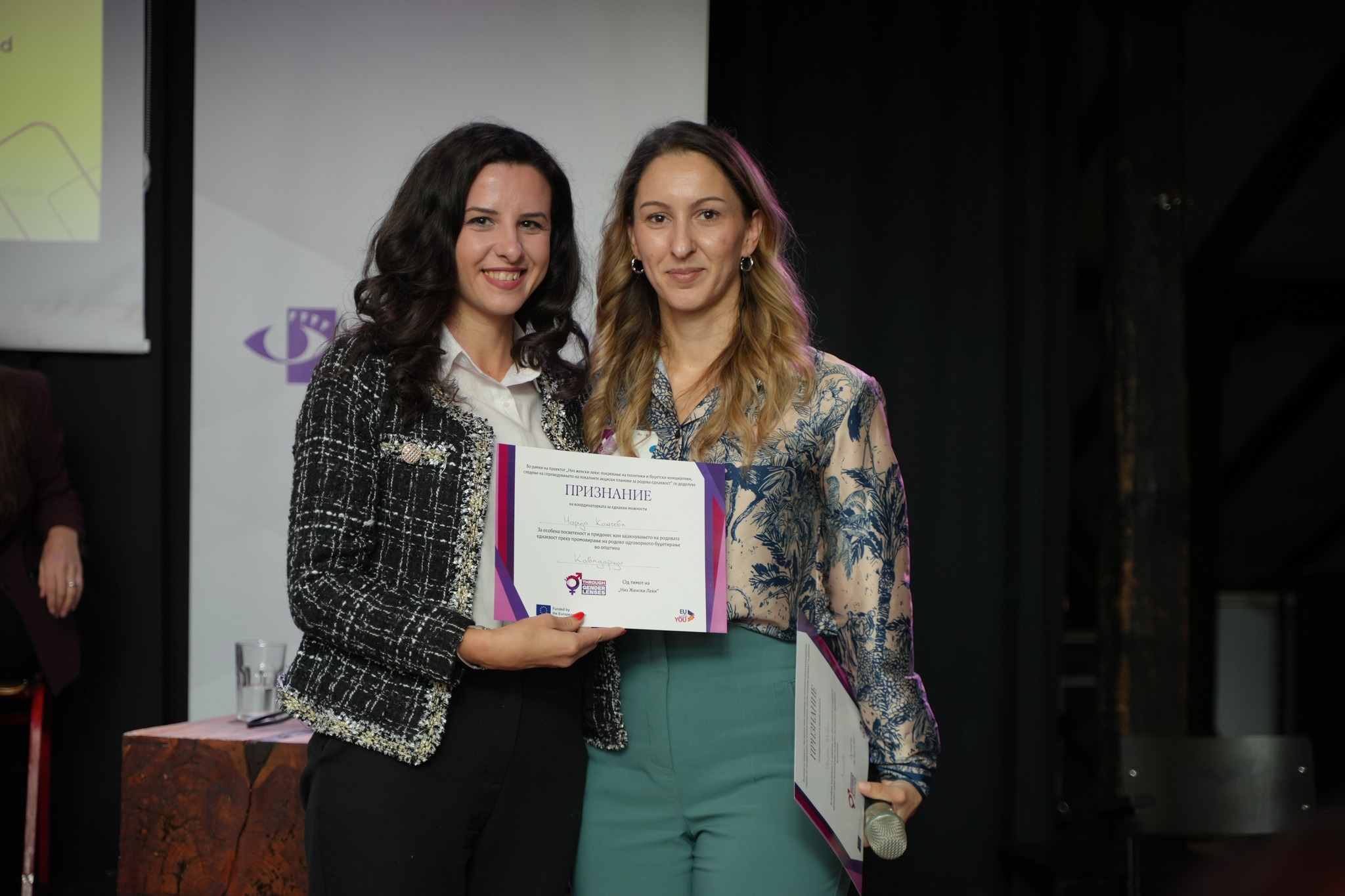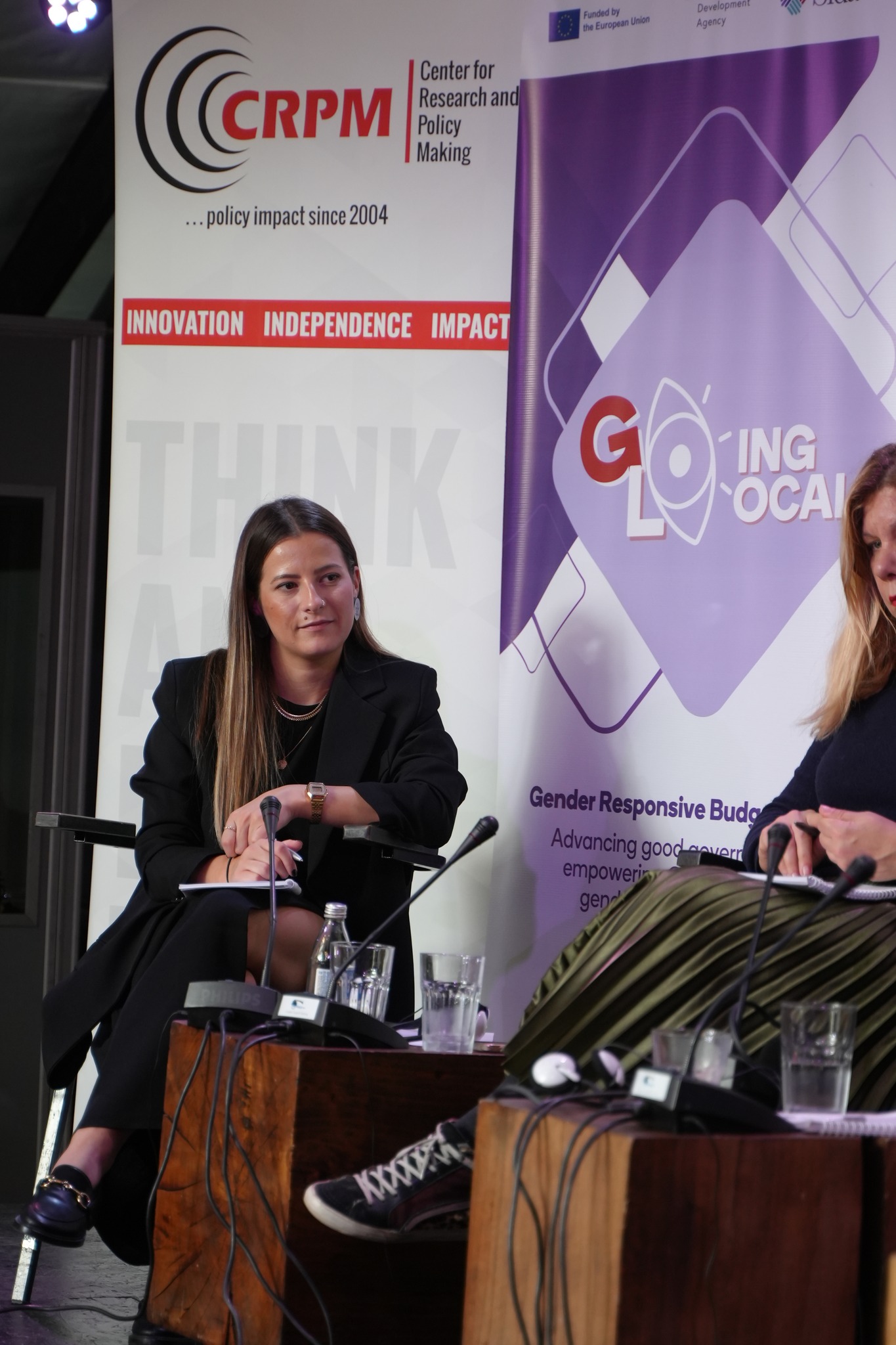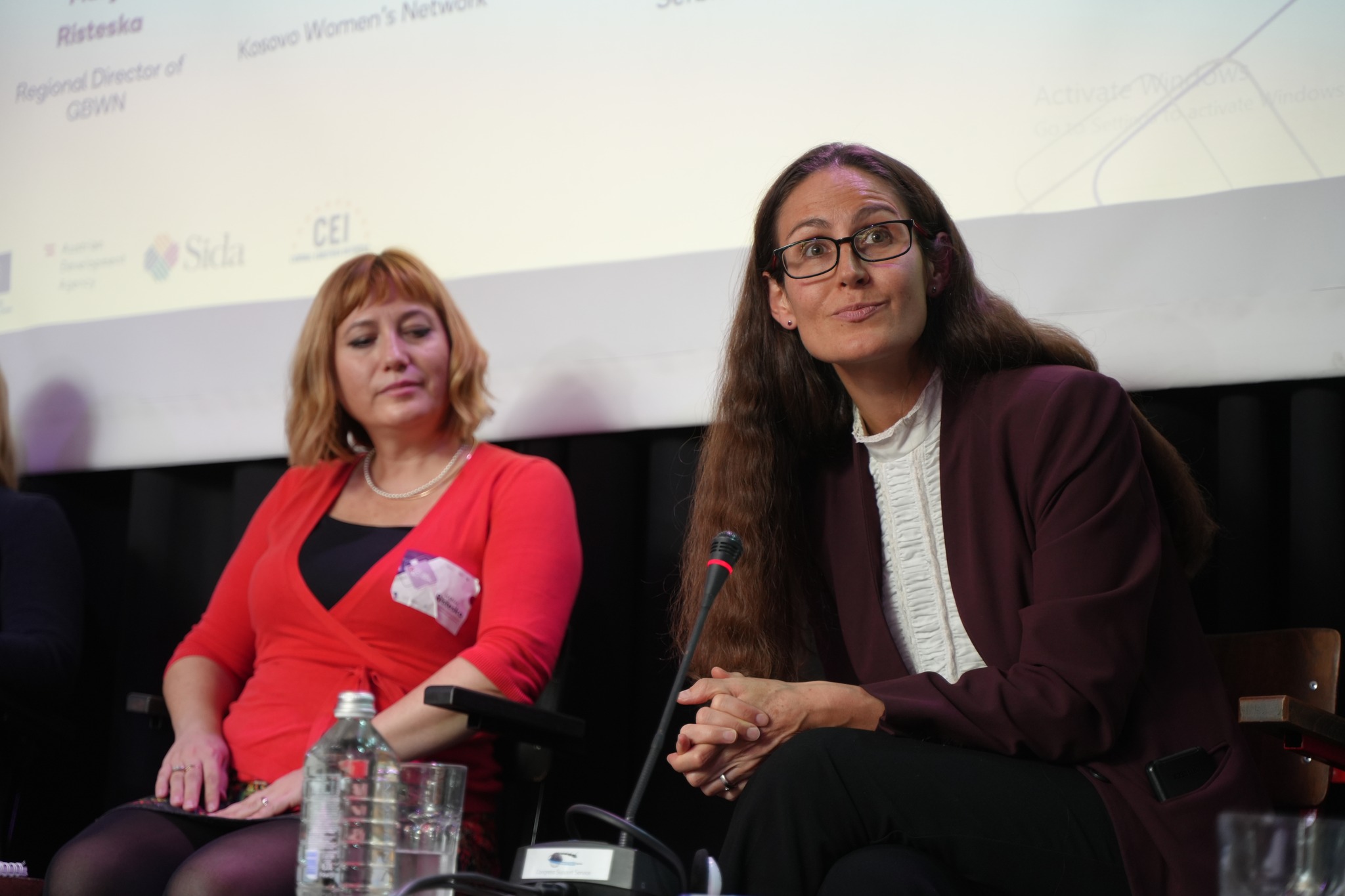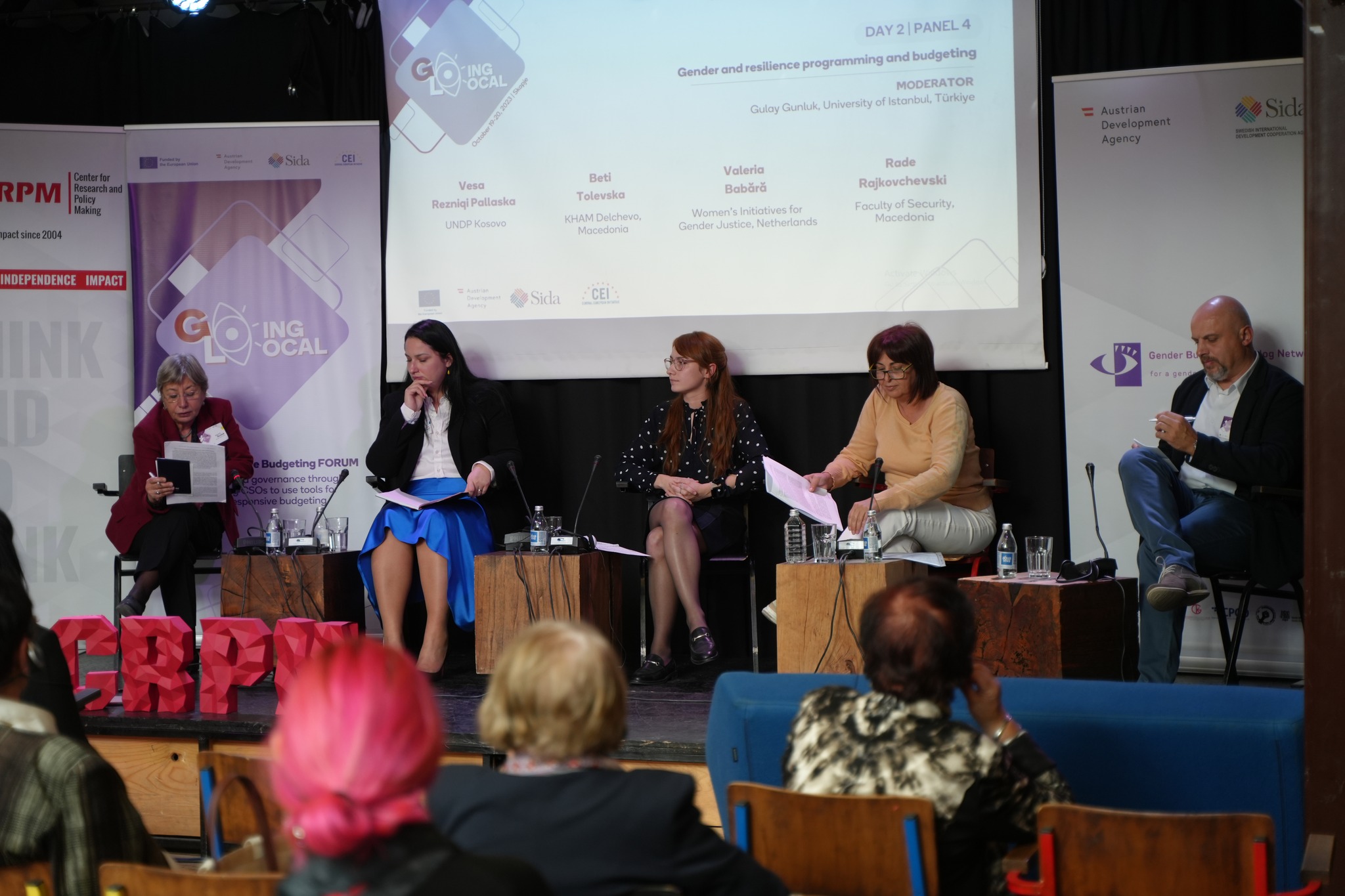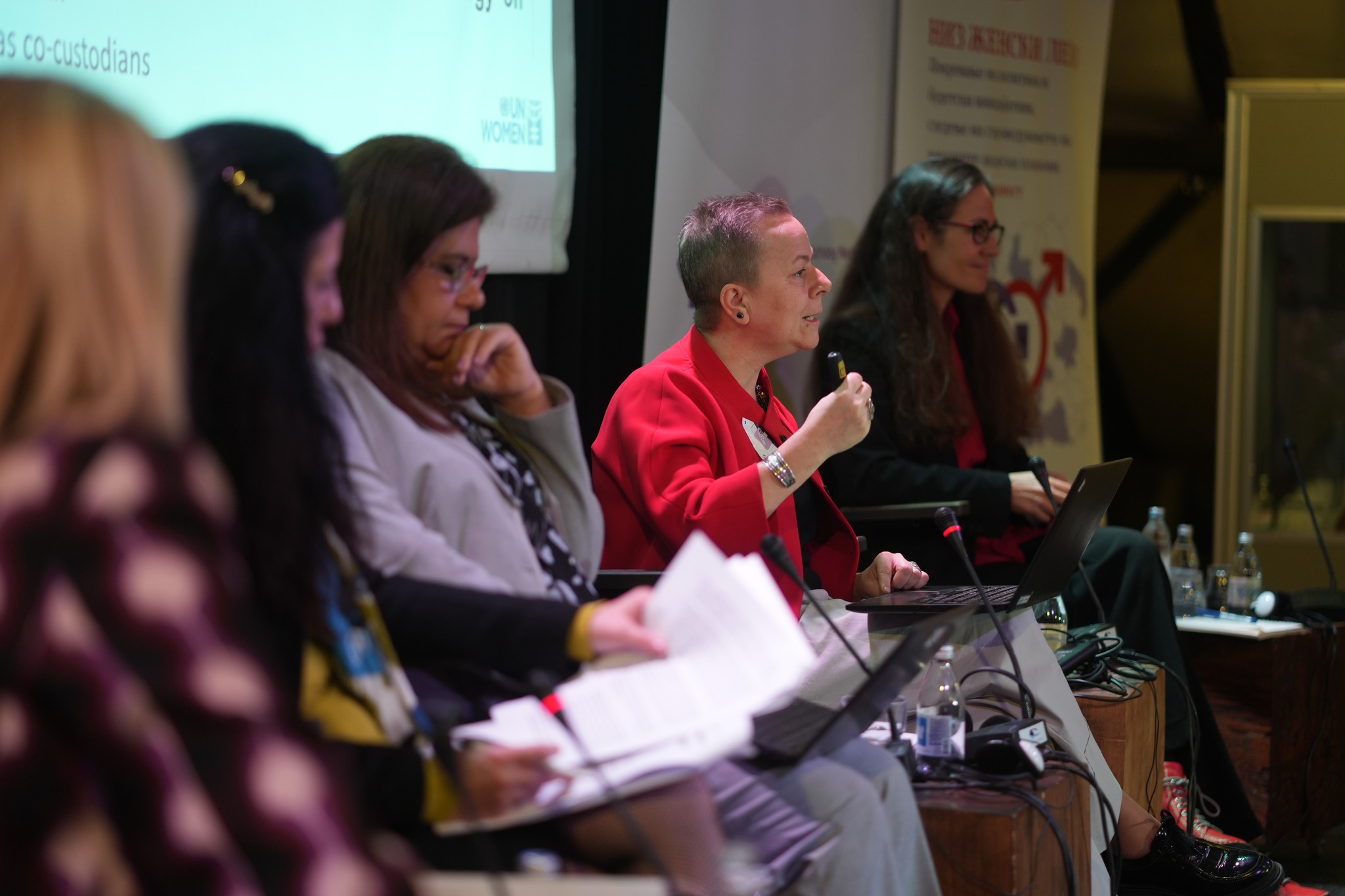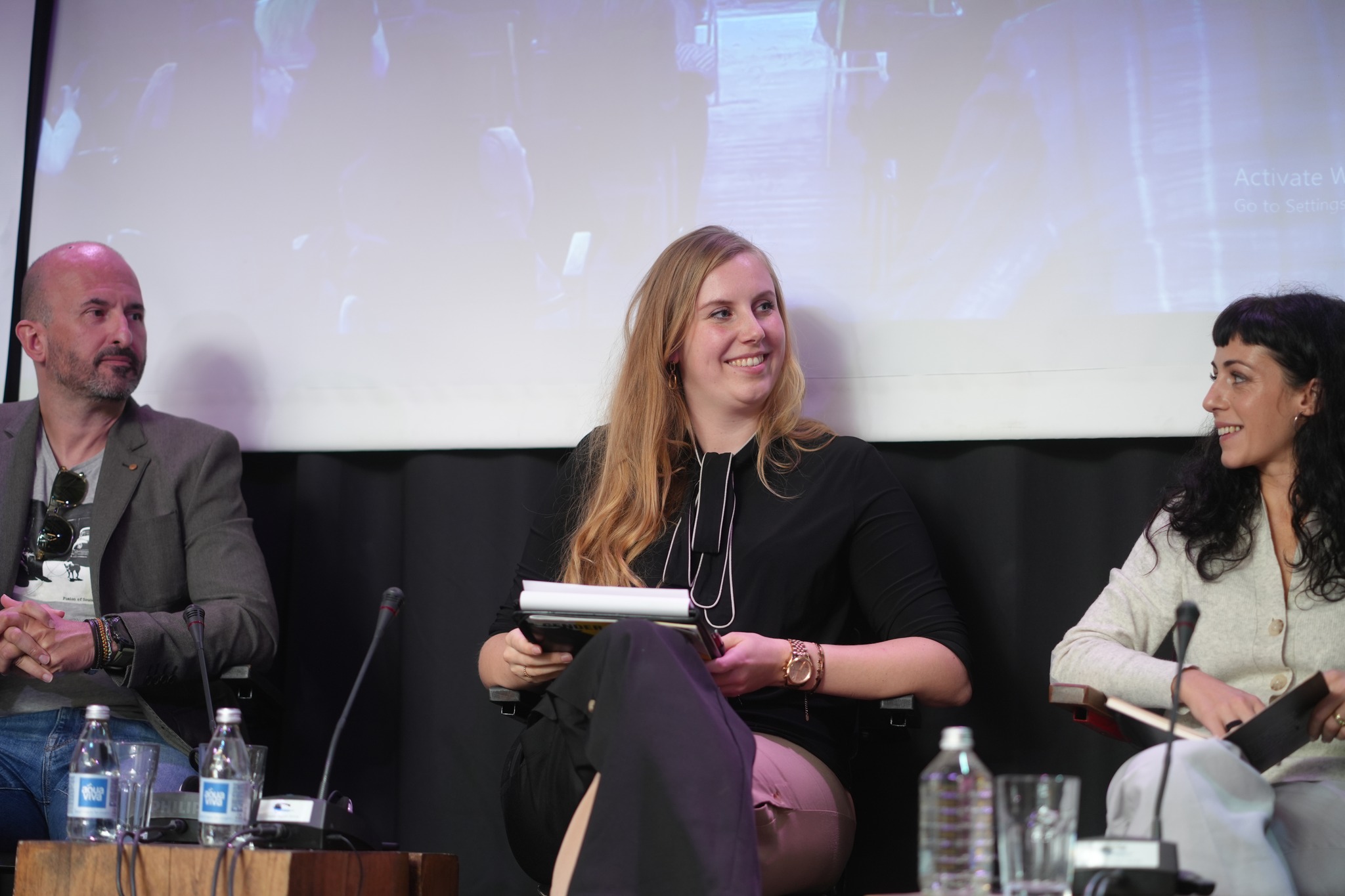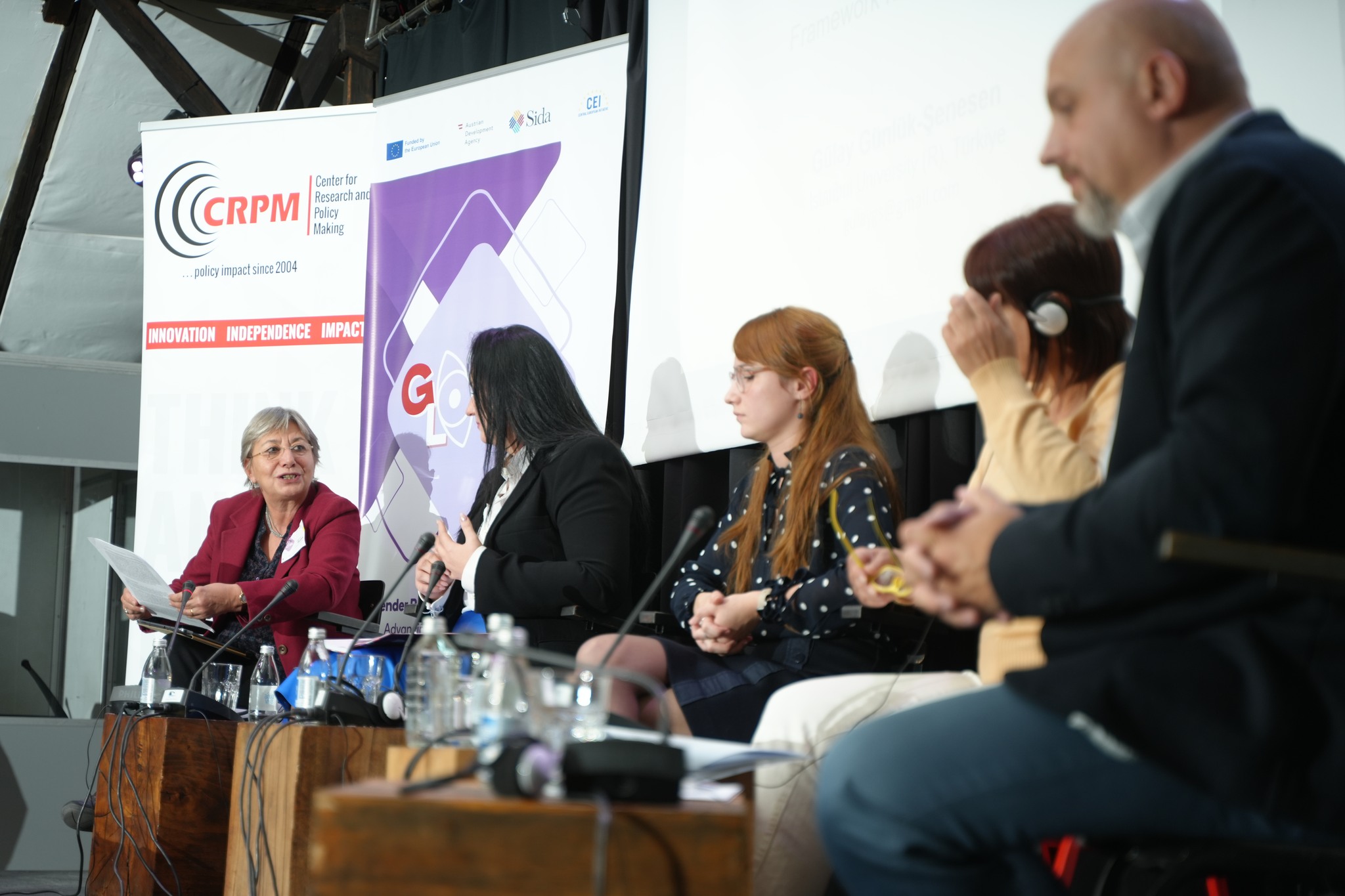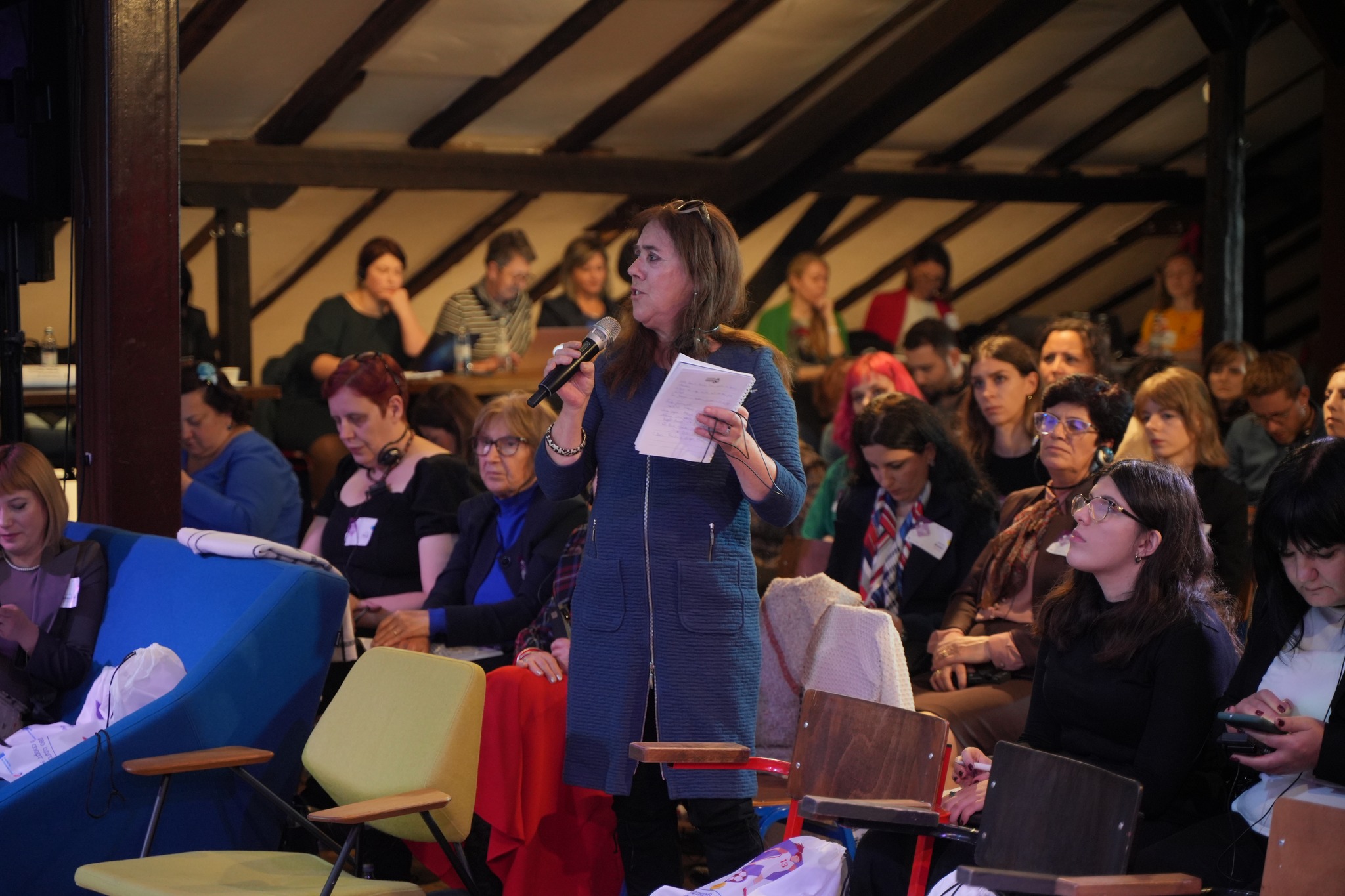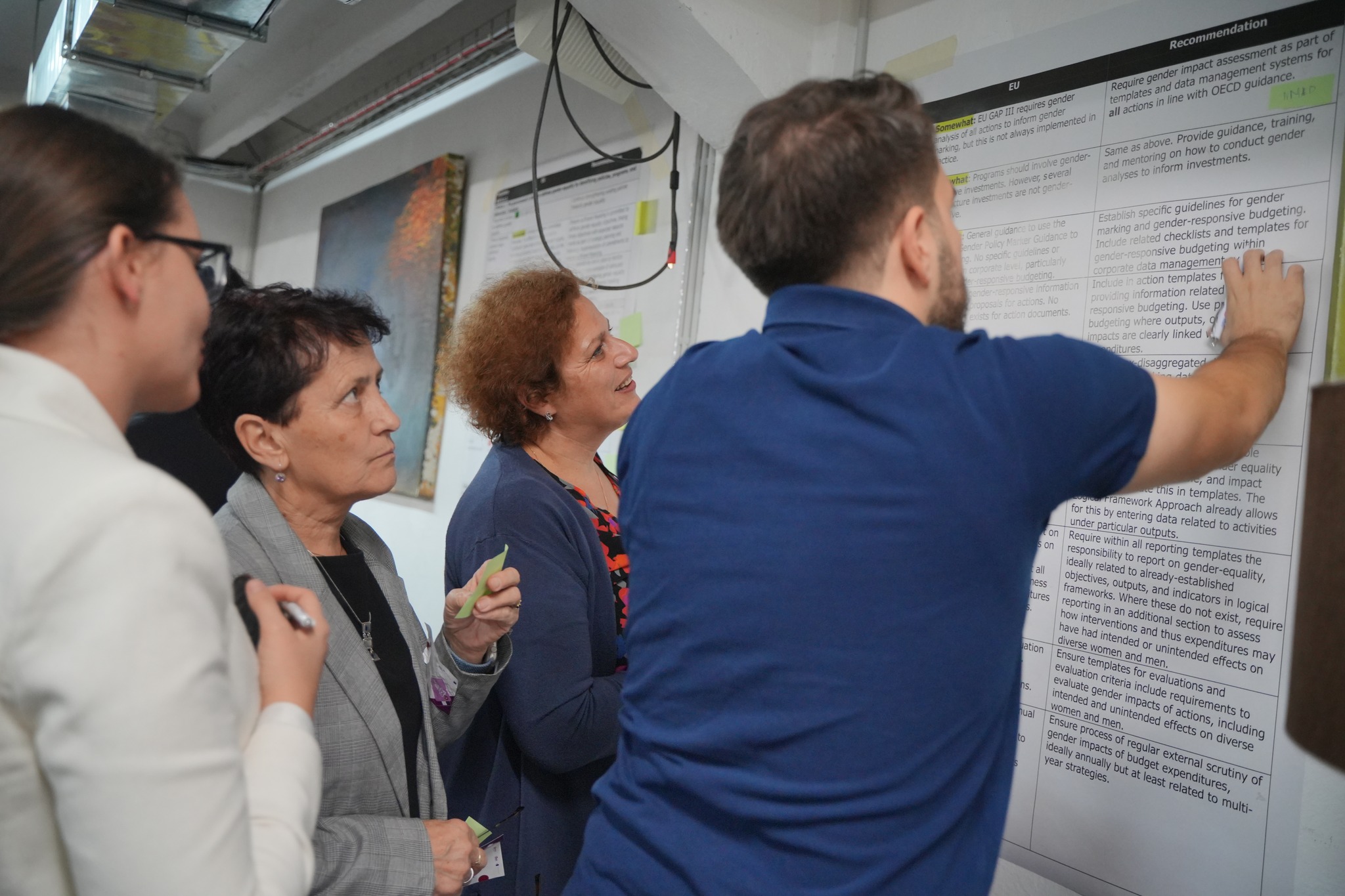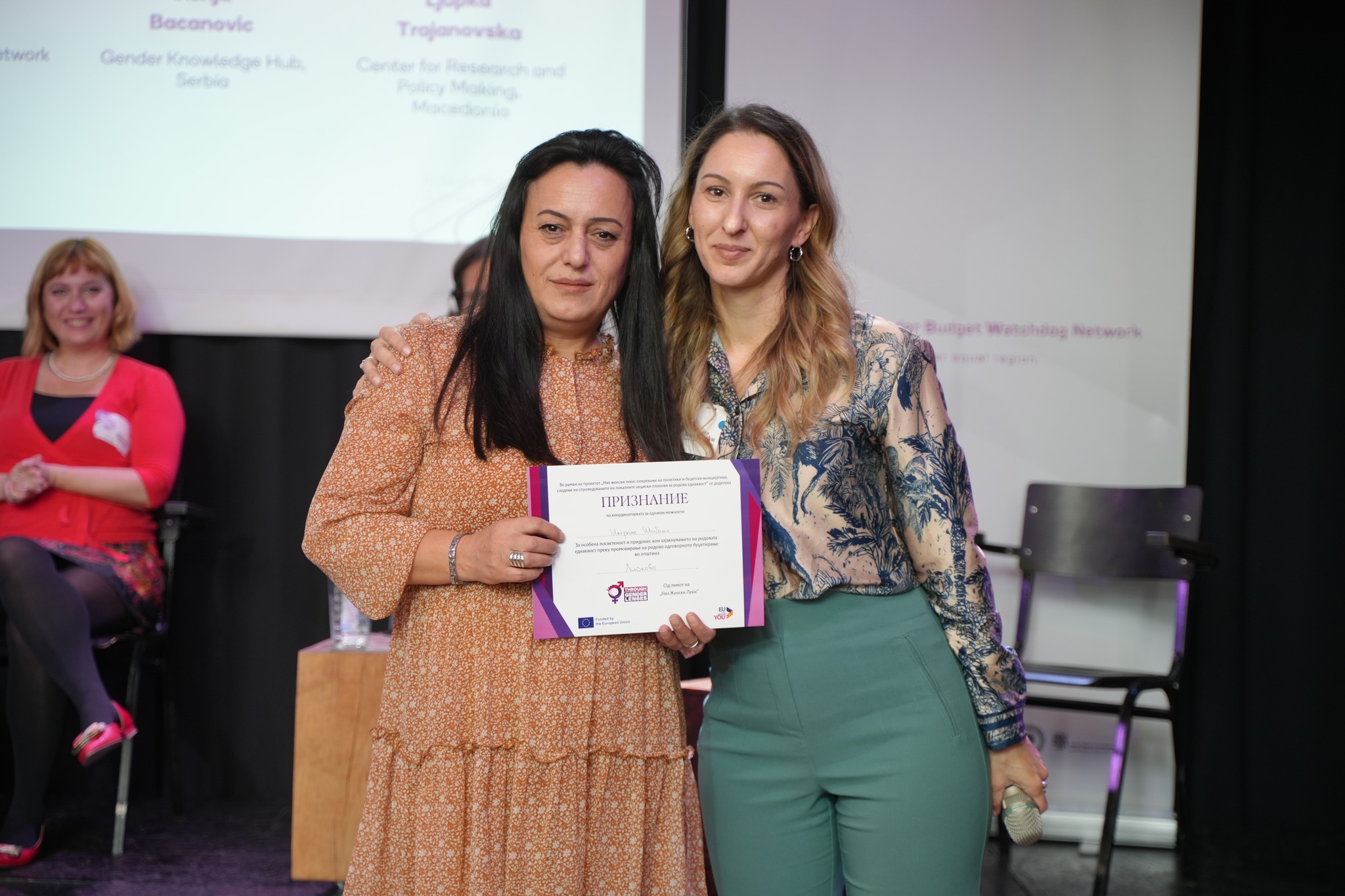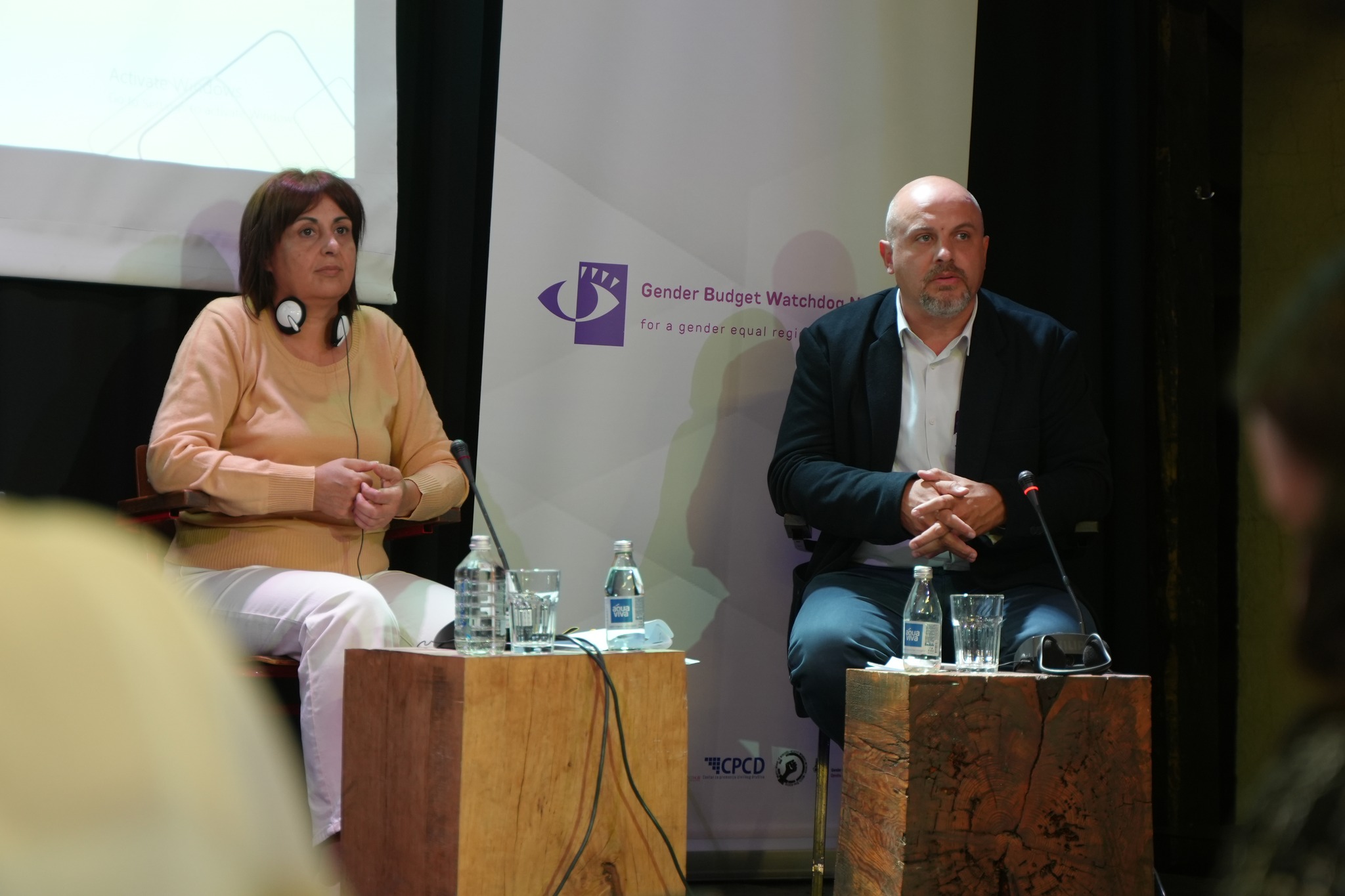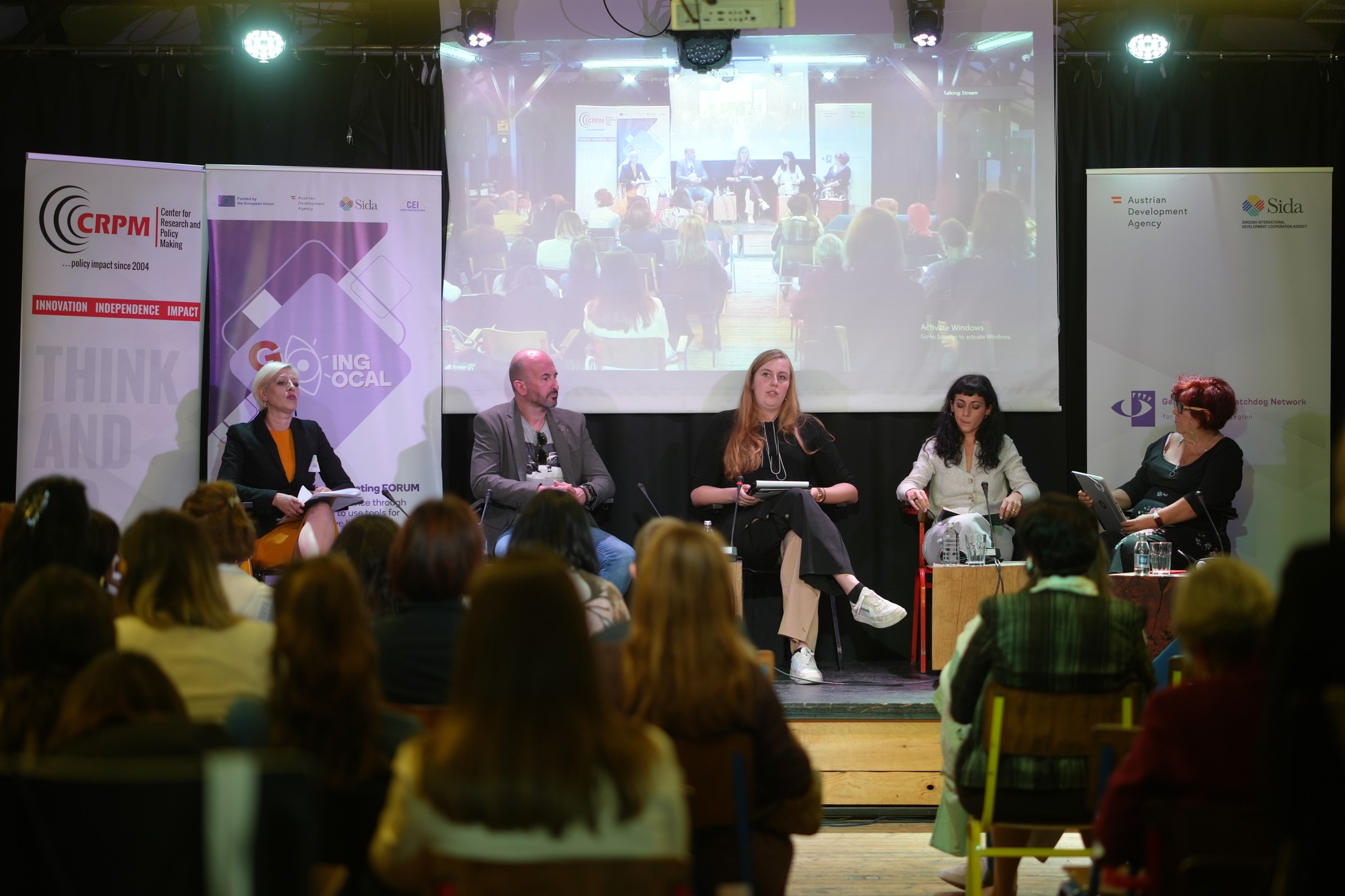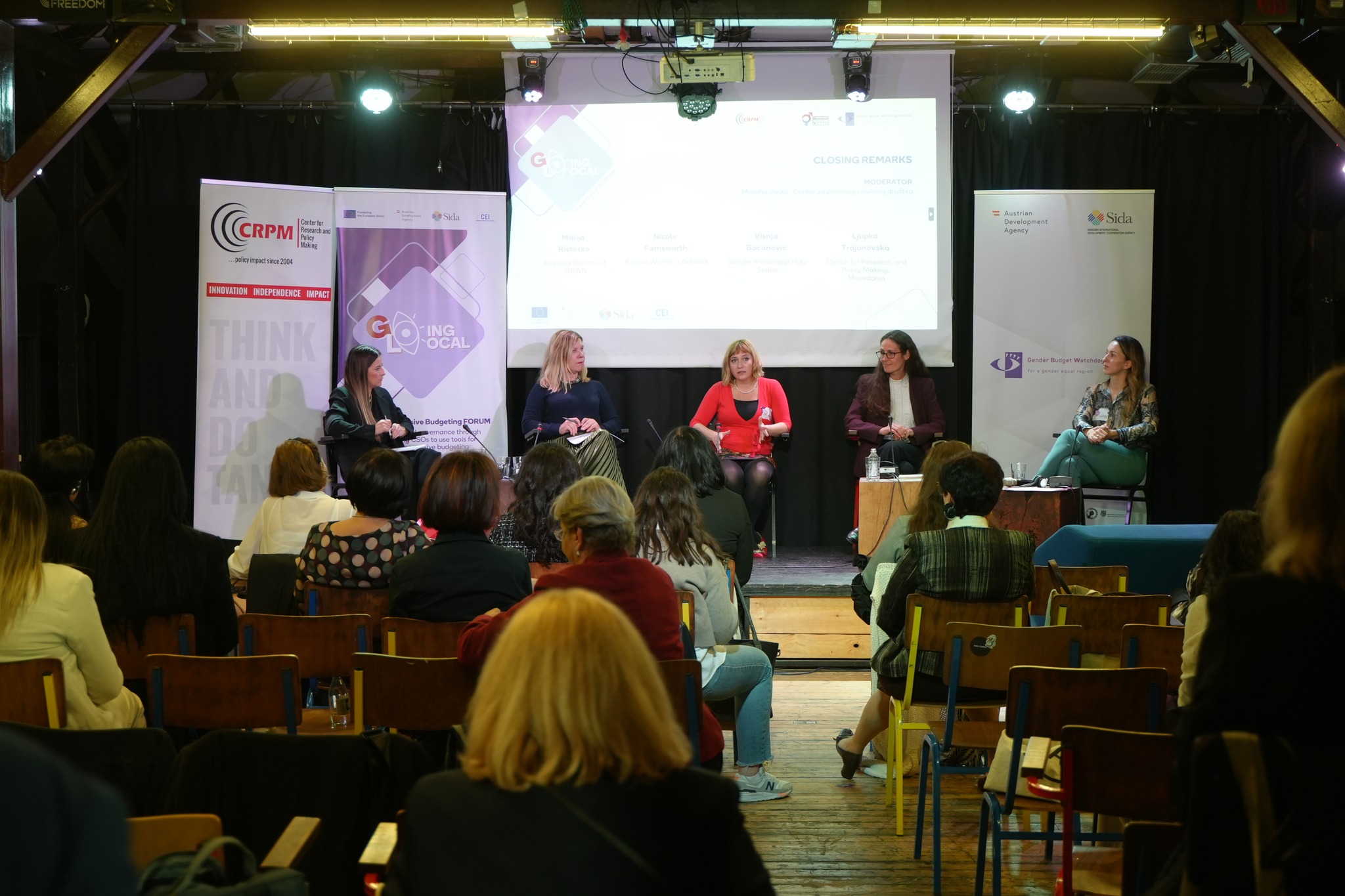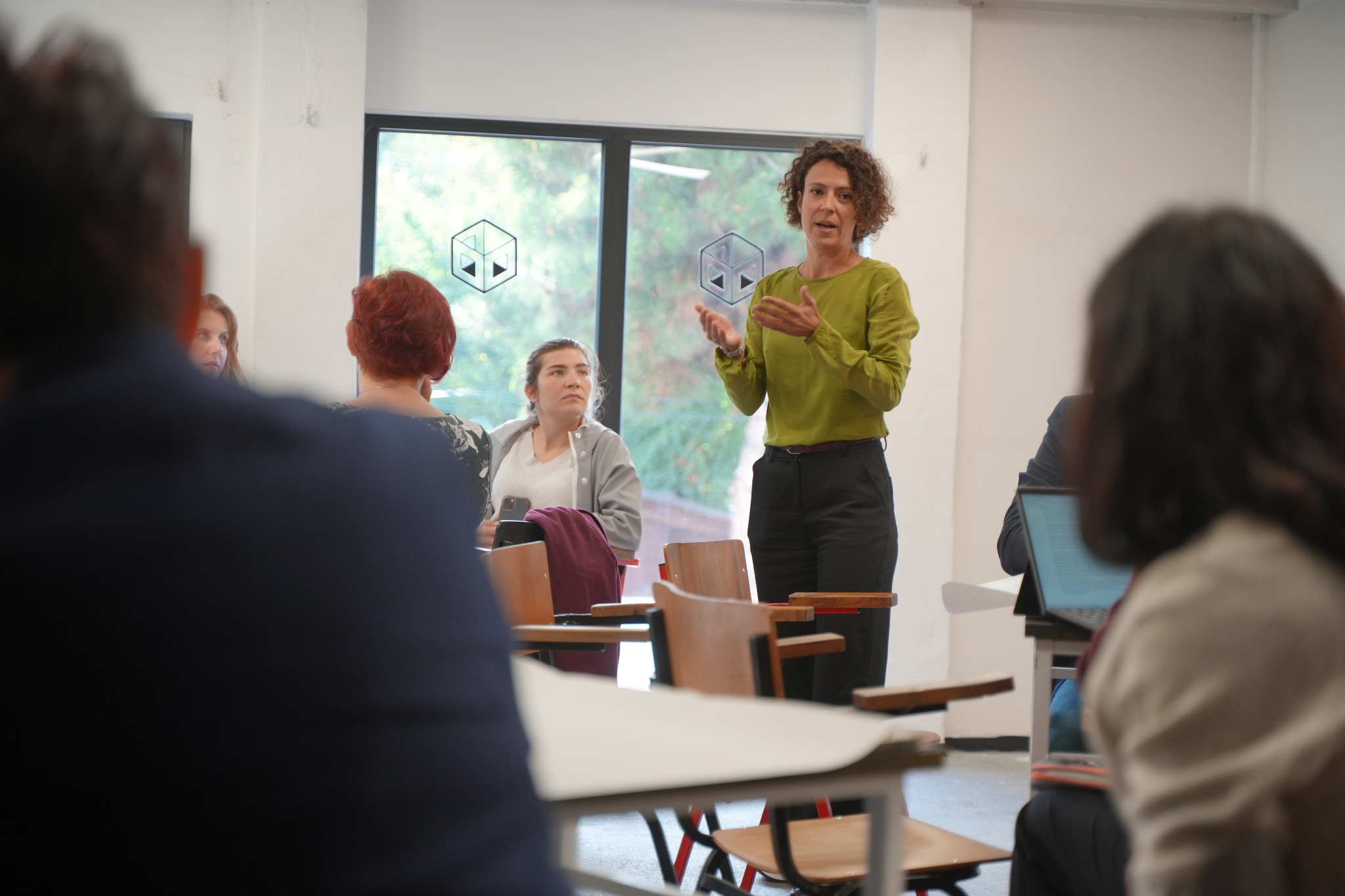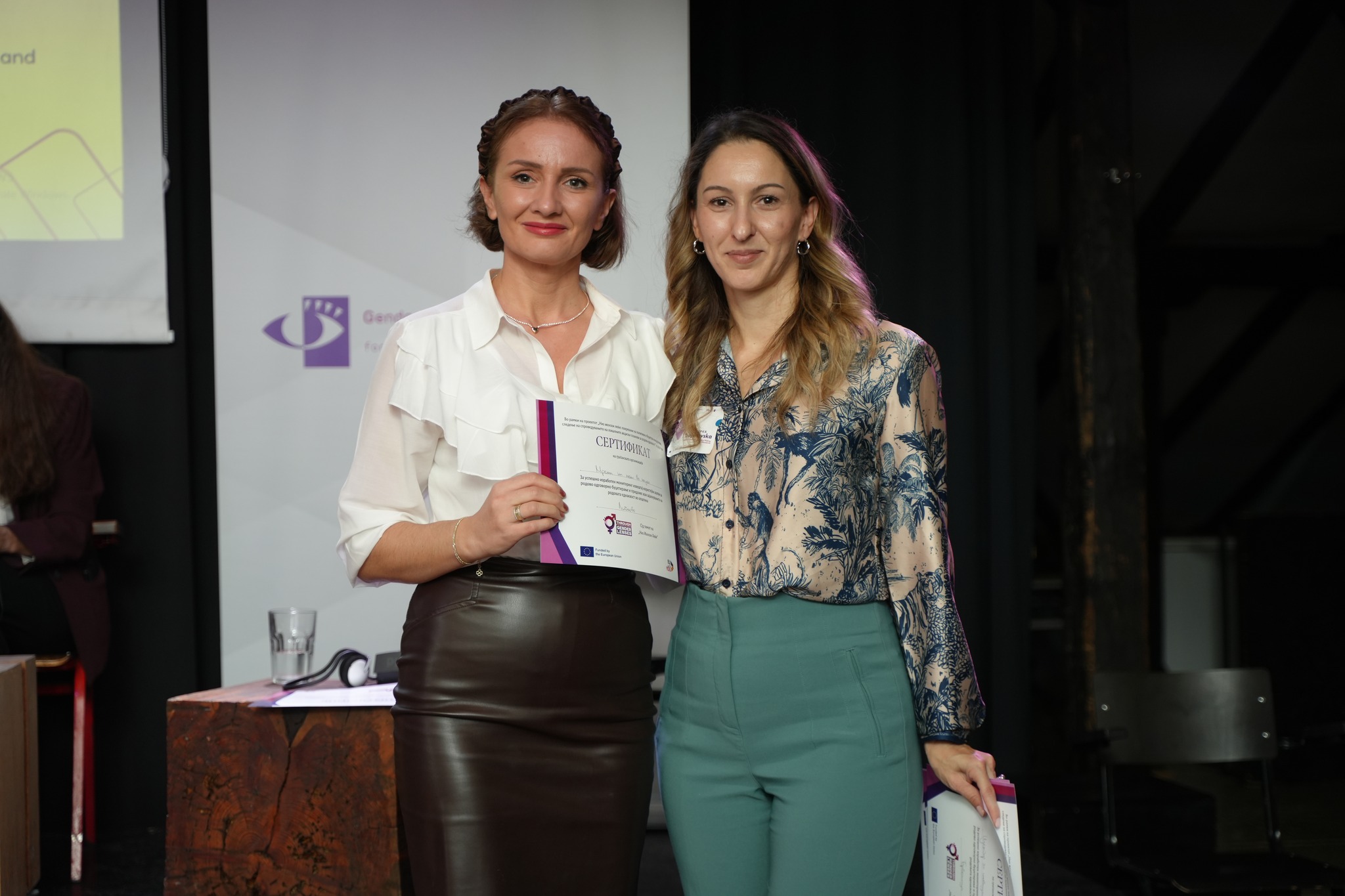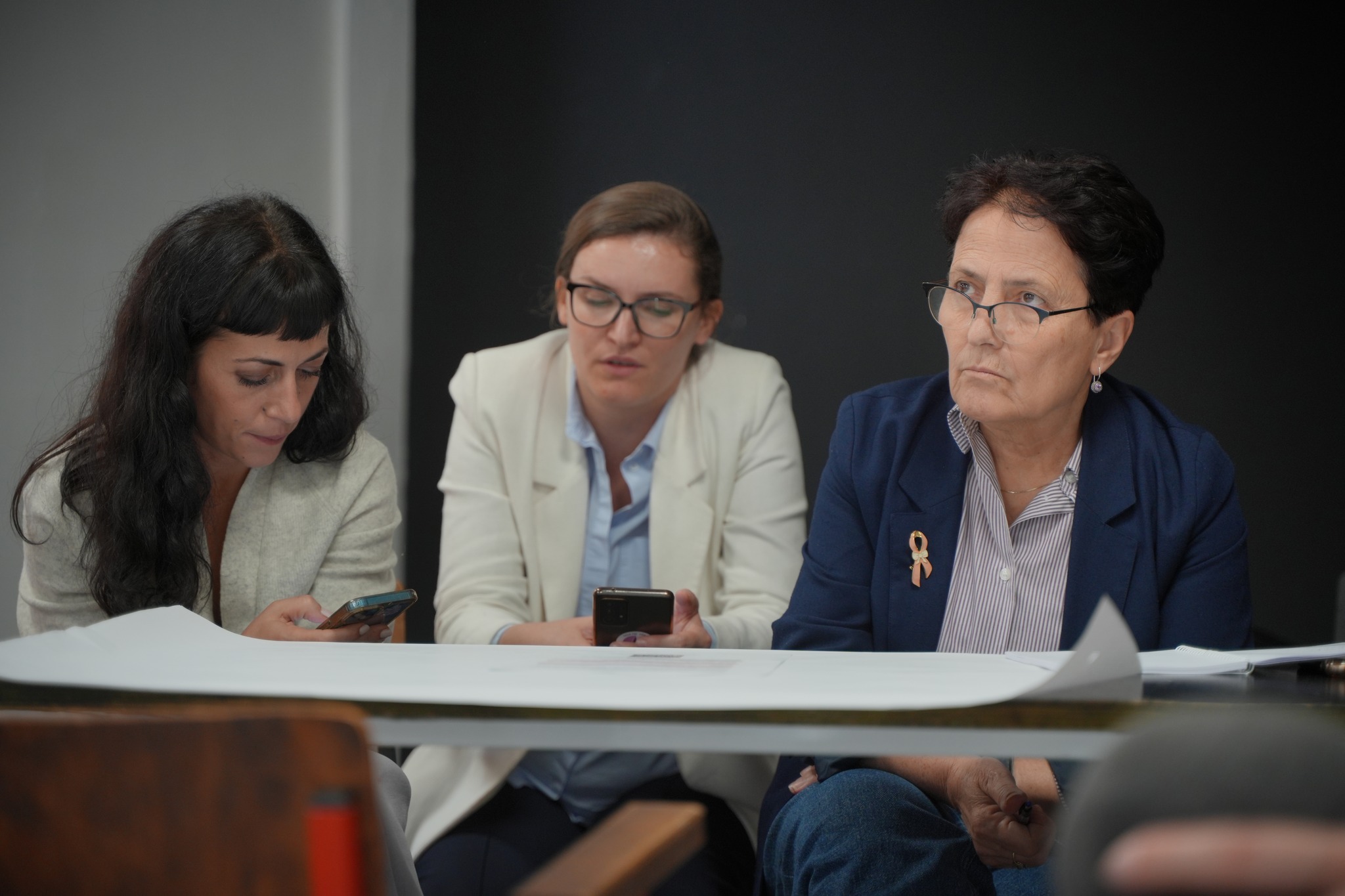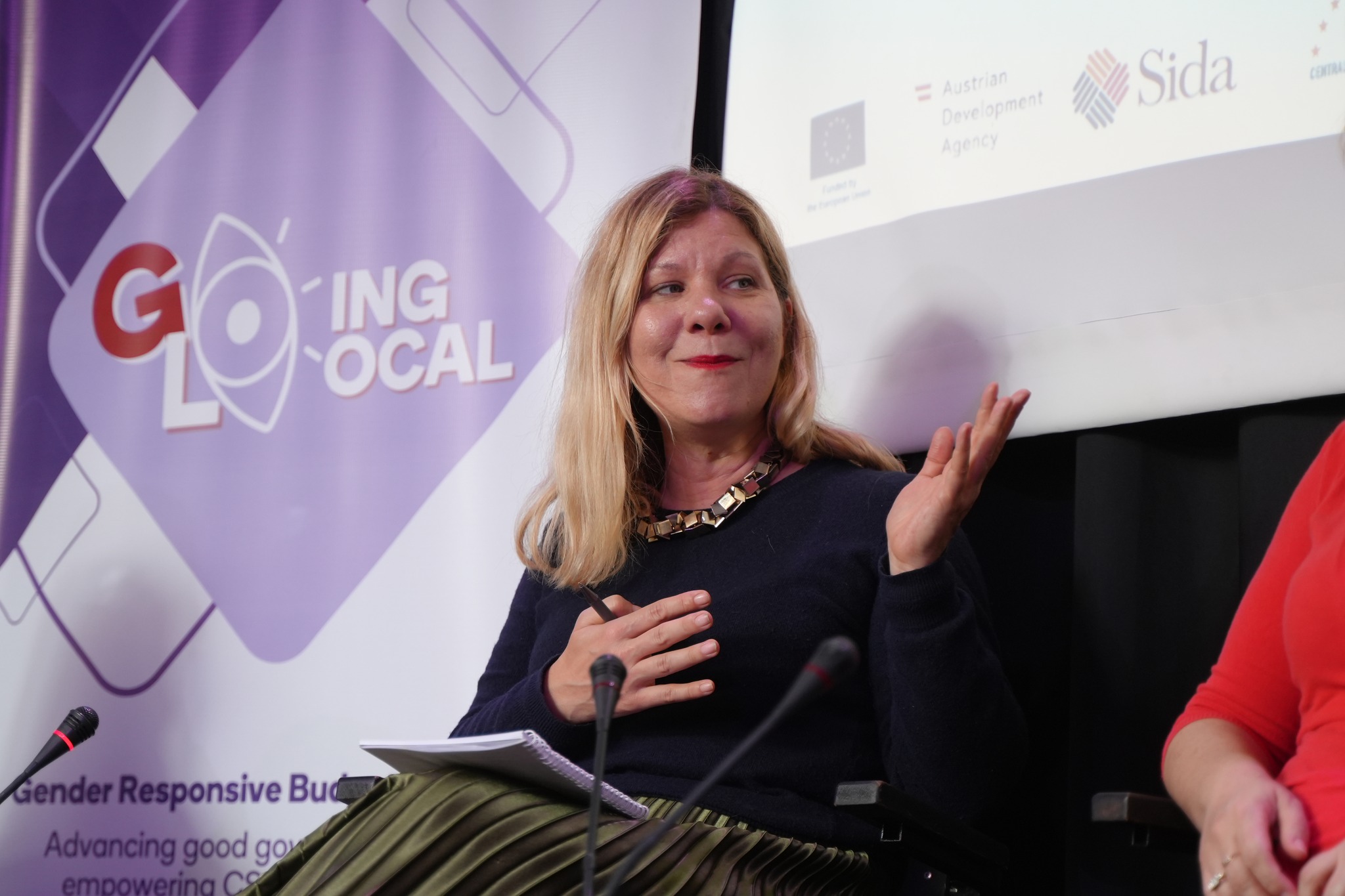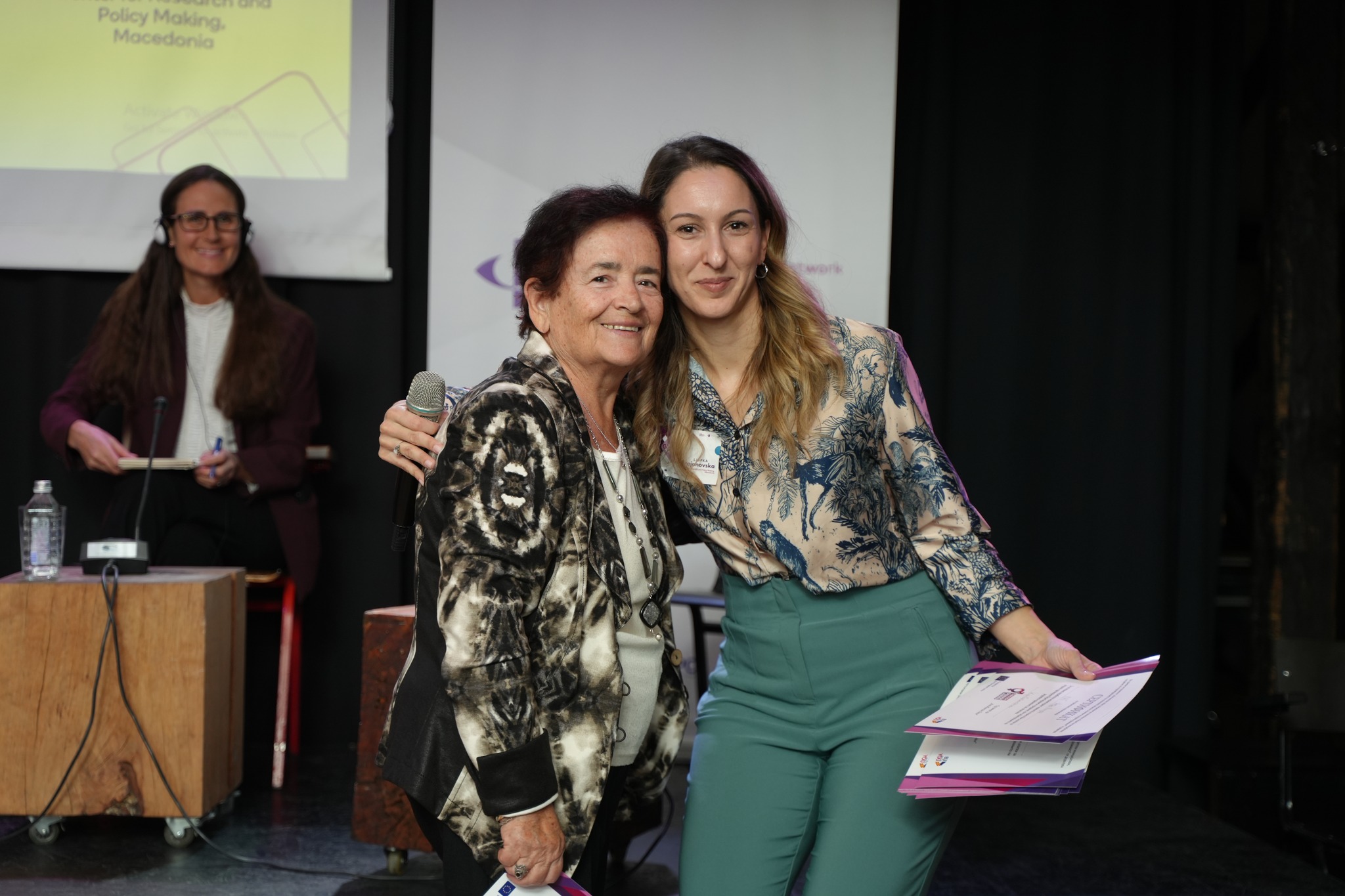The Gender Responsive Budgeting FORUM – Going Glocal: Gender Responsive Budgeting in the Western Balkans & Moldova: advancing good governance through empowering CSOs to use GRB tools, held from October 19-20, brought together a diverse group of participants, including distinguished experts from across Europe, representatives from international organizations, CSO activists, government officials, and other stakeholders. The forum aimed to facilitate the exchange of effective methodologies for advancing good governance through the application of GRB tools. It had a particular focus on building synergies among existing networks and stakeholders to foster joint advocacy and action at national, regional, and international levels.
The primary objectives of the forum included:
- Multifaceted approach to gender-responsive budgeting by showcasing diverse experiences in transforming local communities. This approach focused on informing global strategies for gender equality;
- Enhancing the methodologies and tools for tracking international funding directed towards gender equality initiatives;
- Generating methodological ideas for GRB to effectively contribute to climate change mitigation and adaptation efforts.
The event started with the Opening Launch of the second phase of the Gender Budget Watchdog Network on October 18, taking place at the Triumphal Arch of Skopje. This launch event marked our commitment to strengthening the network as an active and recognized entity. The network is dedicated to enhancing civil society participation in policy and budget processes related to gender-transformative resilience response and climate change.
During the launch event, Mr. David Muckenhuber, the ADA Head of Office, Ami Larsson Jain, the Swedish Ambassador to Macedonia, and Marija Risteska, the regional director of GBWN, delivered opening remarks and shared valuable insights. This event set the stage for the subsequent GRB Forum, emphasizing the importance of civil society participation in promoting gender equality and addressing climate change challenges.
Day one highlightsOn October 19th, the forum opened with an address by Marija Risteska, underlining the vital role of GRB in international development organizations, governments, and stakeholder initiatives. Enver Husejin, the Deputy Minister of Labour and Social Policy and Lidija Arsova, CEI representative echoed this sentiment, emphasizing inclusion and addressing vulnerabilities.
- Panel one: Experts delved into the current methodologies for tracking financing, including OECD, EU, and UN gender markers. Speakers stressed the importance of gender-disaggregated data and tracking budget expenditure for gender equality.
- Panel two: This segment focused on tools for gender budget tracking and institutional mechanisms, addressing gender markers, terminology, impact measurement, and the roles of institutions and policies.
- Panel three: Strategies for GRB advocacy were explored, including international cooperation, political challenges, and the importance of integrating GRB into policies and budgets.
The consensus from day one was clear: practical implementation of GRB, political will, and the promotion of gender equality in budgeting and policies are paramount.
Day two highlights
October 20th brought a fresh perspective to GRB, focusing on its methodologies in the context of climate change.
- Panel four: Experts discussed the transformative power of GRB at the local level in informing global and local initiatives. Local civil society organizations and governments stressed the importance of political will, gender-sensitive budgeting, and increased participation.
- Panel five: The conversation centered on gender mainstreaming in policy and budgeting for development, emphasizing the need for gender-responsive budgeting, communication, capacity building, and inclusive policies.
- Panel six: The discussion revolved around climate change financing and gender justice, highlighting the gendered impact of climate change and the importance of gender-responsive financing.
- Panel seven: Focusing on gender and resilience programming and budgeting, this panel underscored the importance of integrating gender dynamics into resilience response programs and highlighted the significance of gender-sensitive budgeting.
In the closing remarks, speakers emphasized the need for collaboration, advocacy at the international level for gender-responsive budgeting, and influencing climate change financing from a gender perspective. Building coalitions and expanding the network were also highlighted as essential steps for furthering gender equality initiatives.
In conclusion, the forum offered a deep dive into the various facets of gender-responsive budgeting, discussing challenges and successes in its implementation, and the importance of political will, data collection, and civil society involvement in achieving gender equality and addressing climate change. The insights shared at this event underscore the critical role GRB plays in shaping a more equitable and inclusive future.
The Gender Responsive Budgeting FORUM was a joint initiative between the EU funded project “Through gender lenses: Appraising budgets and policies, watchdogging local action plans for gender equality implementation” and the Gender Budget Watchdog Network, supported by the Austrian Development Agency (ADA) and the Swedish International Development Cooperation Agency (Sida), with additional support from the Central European Initiative – CEI.

